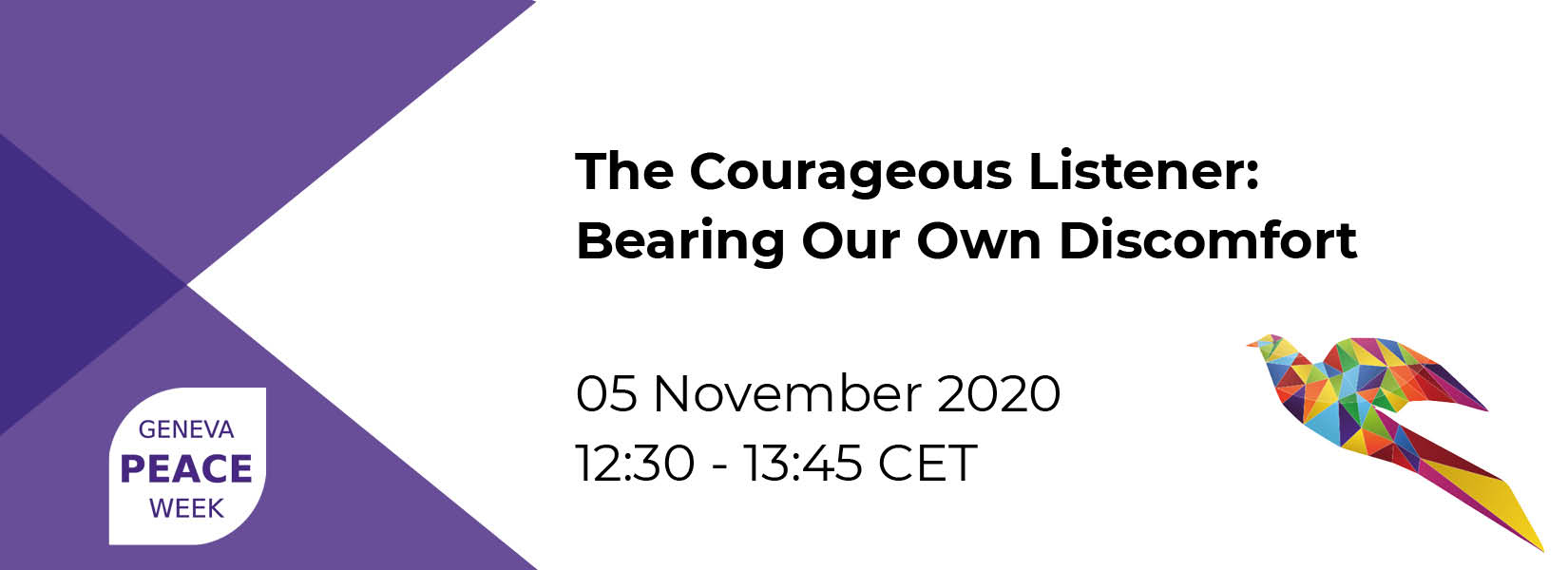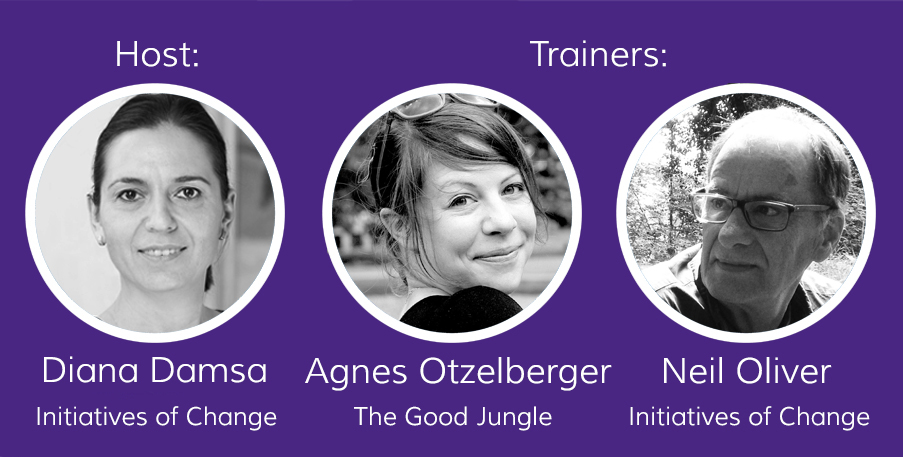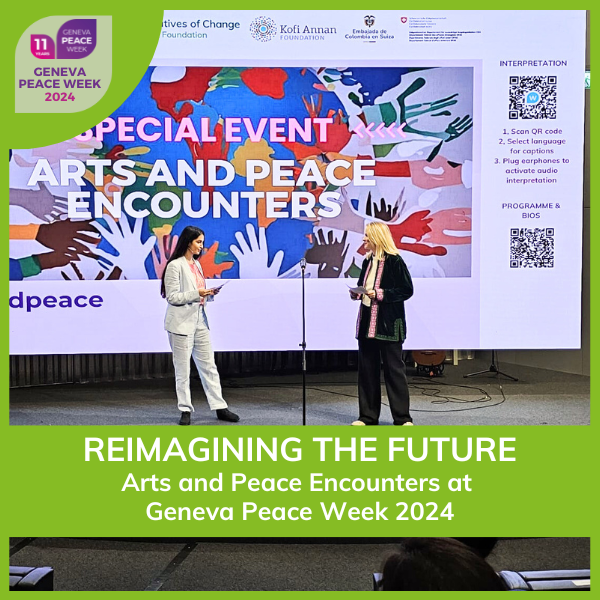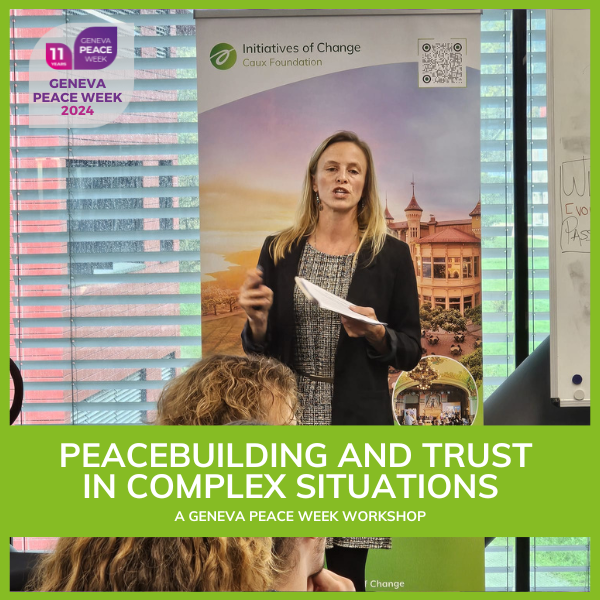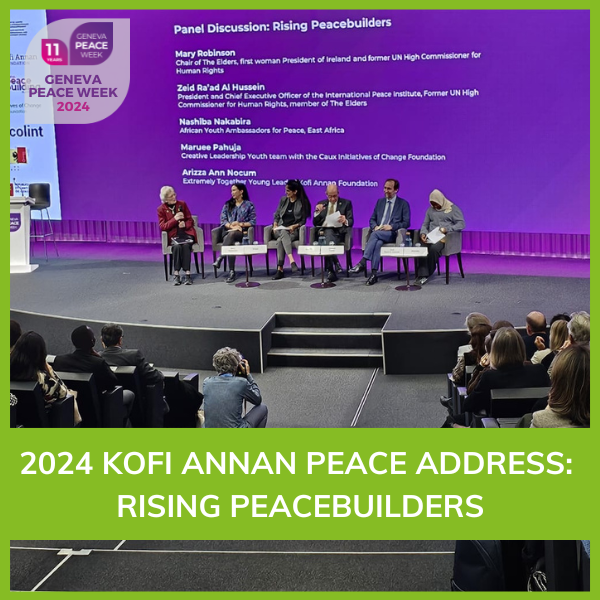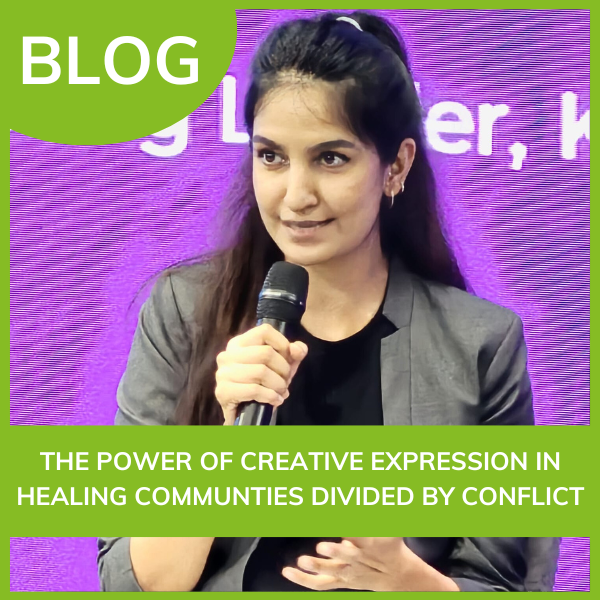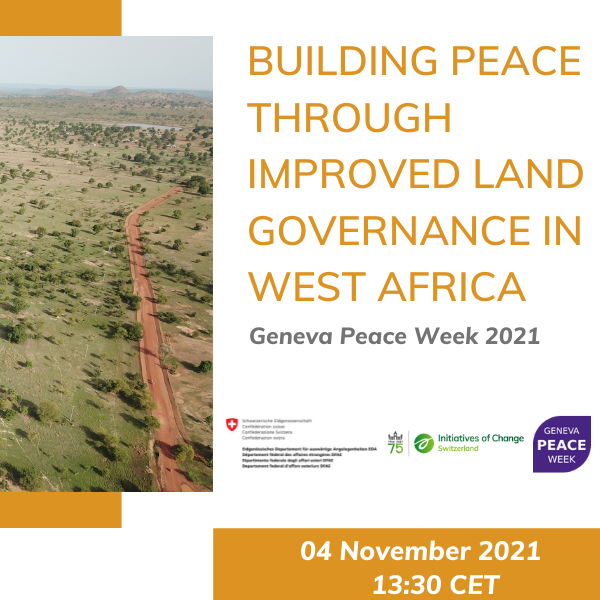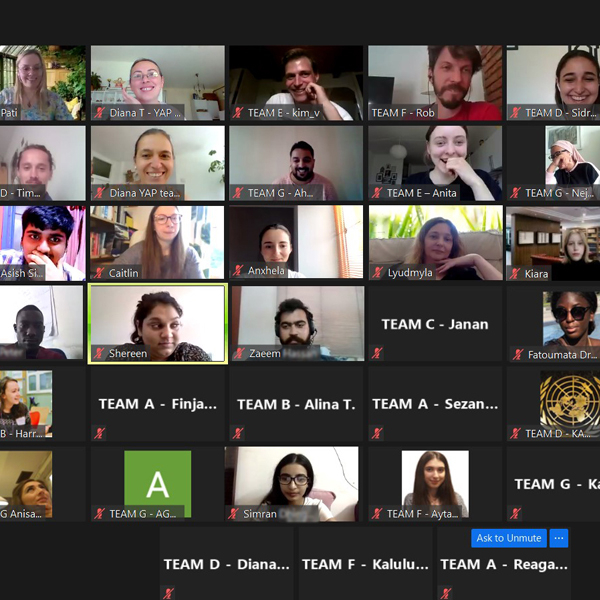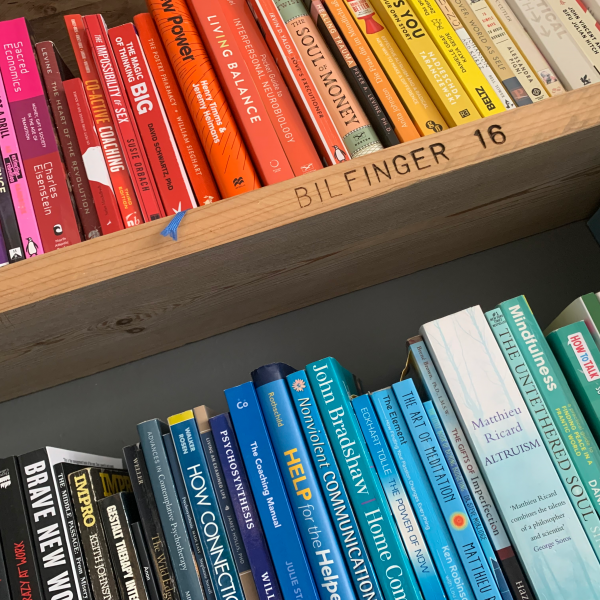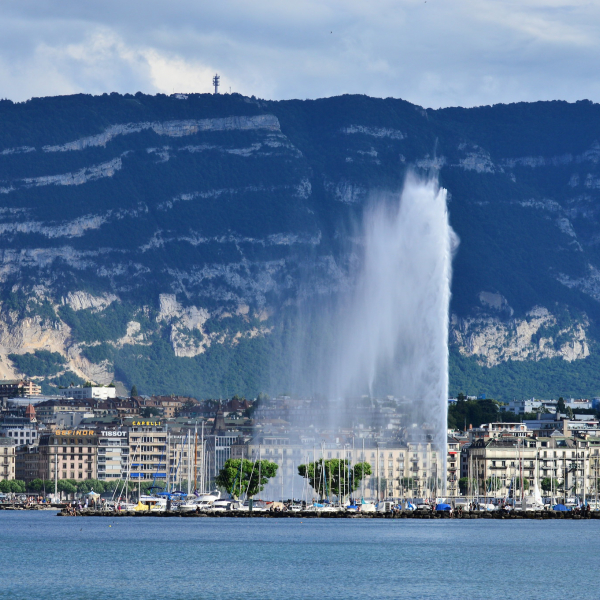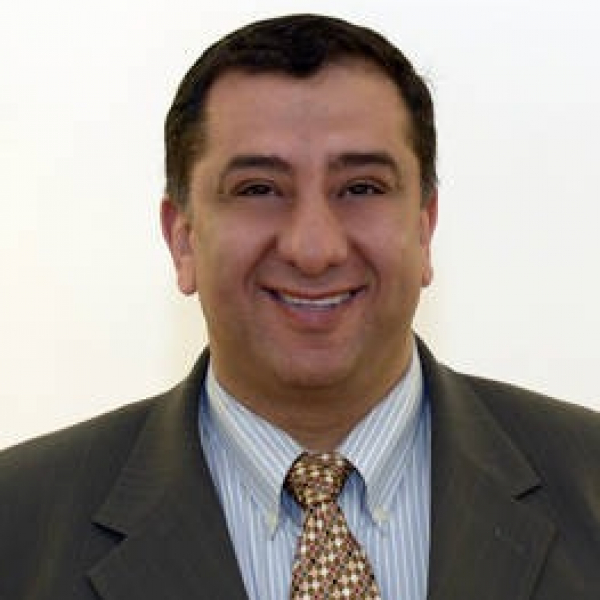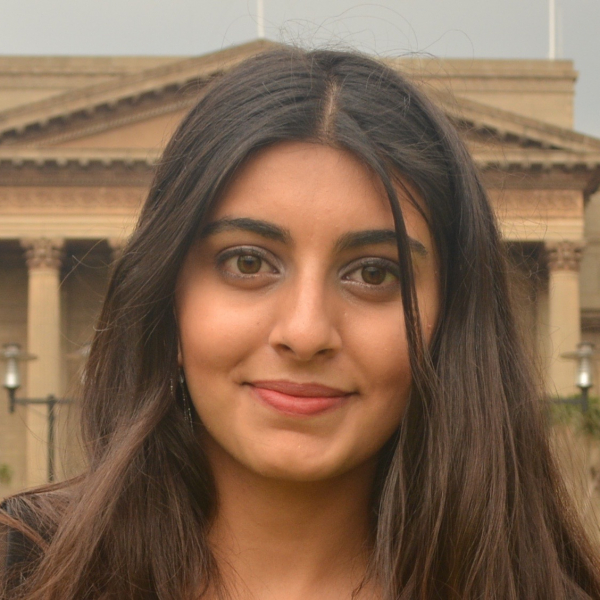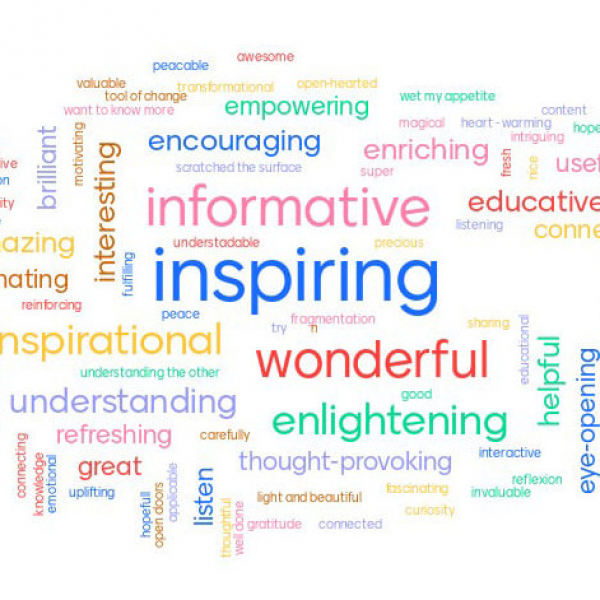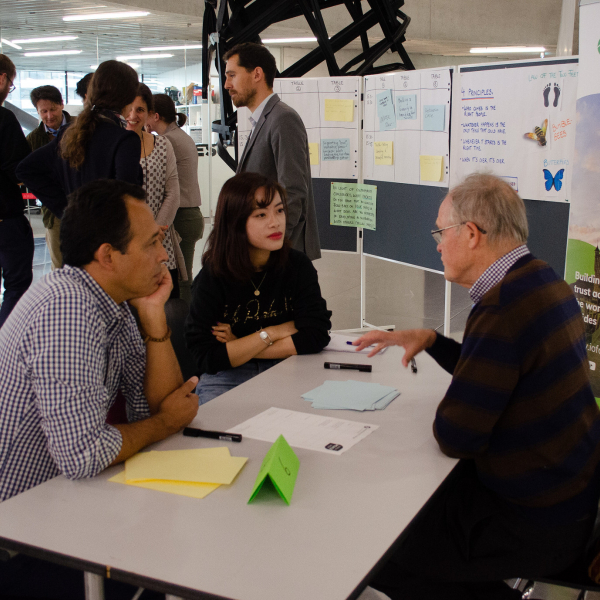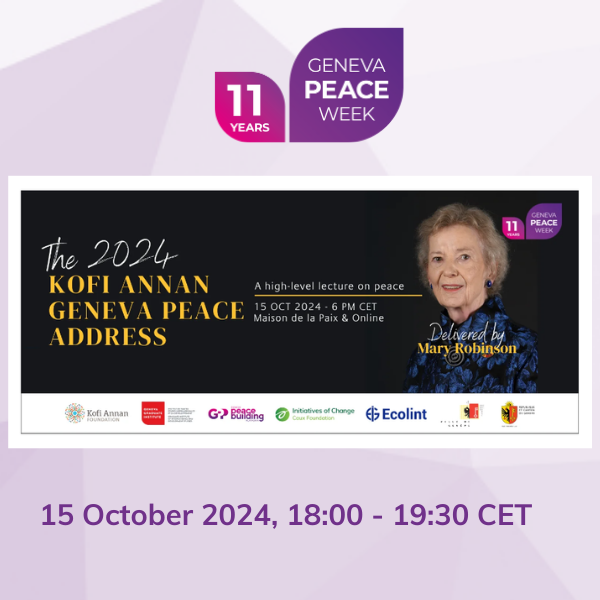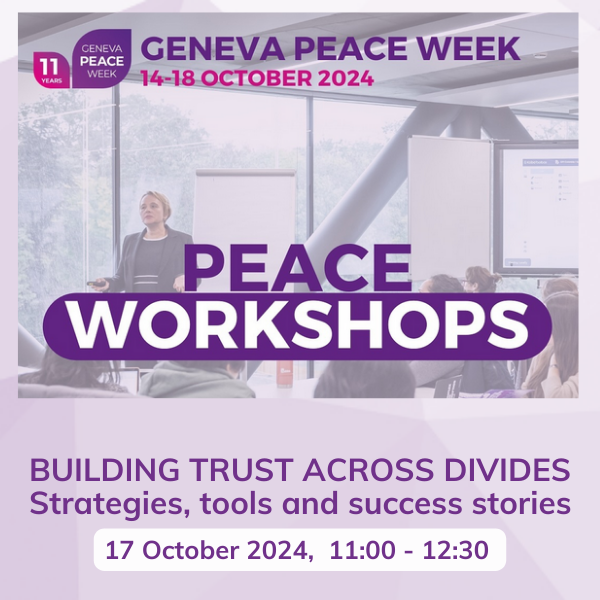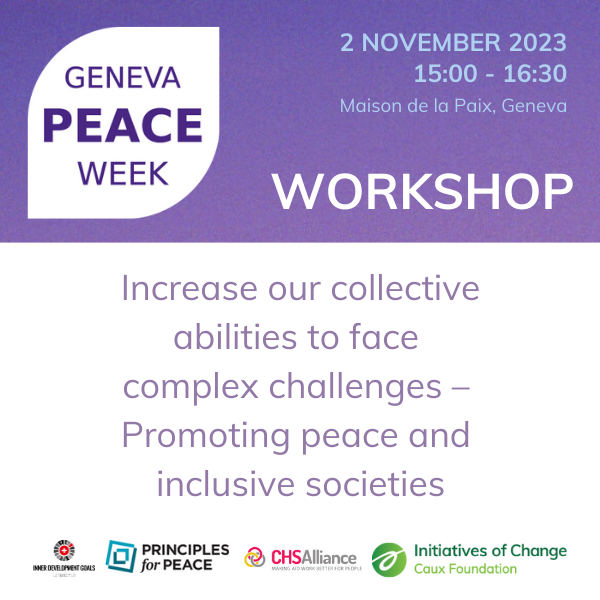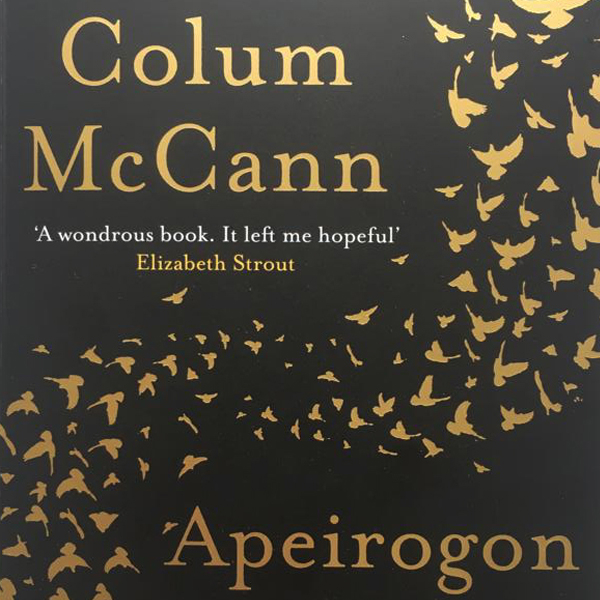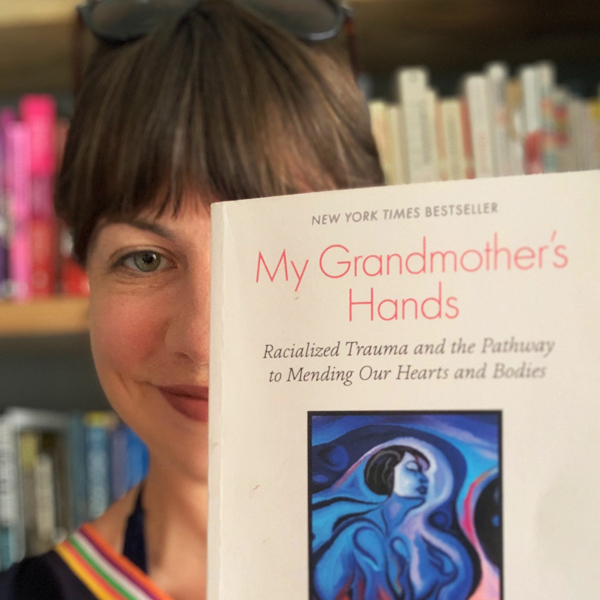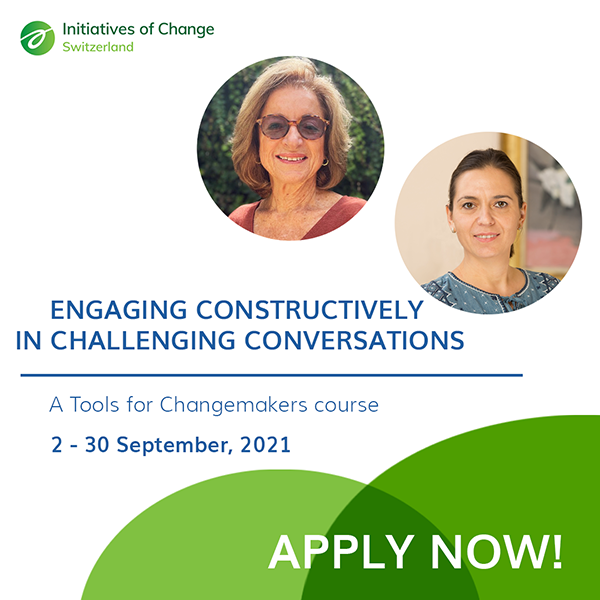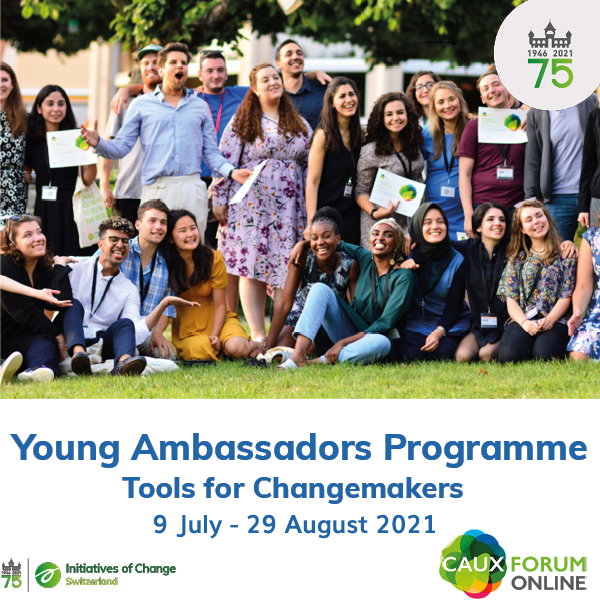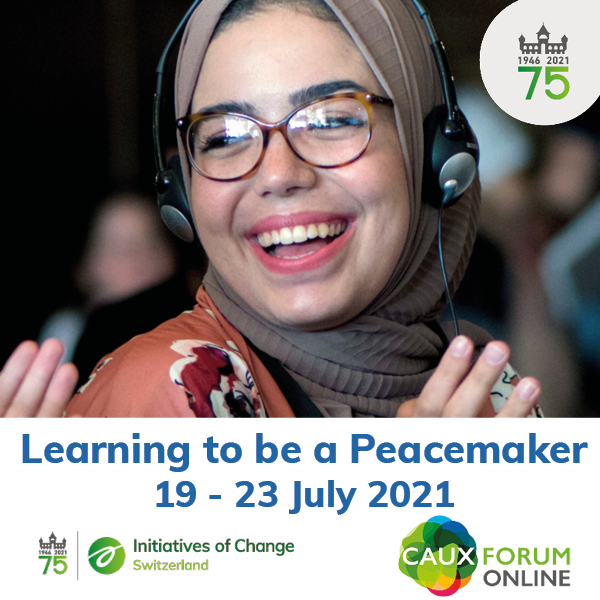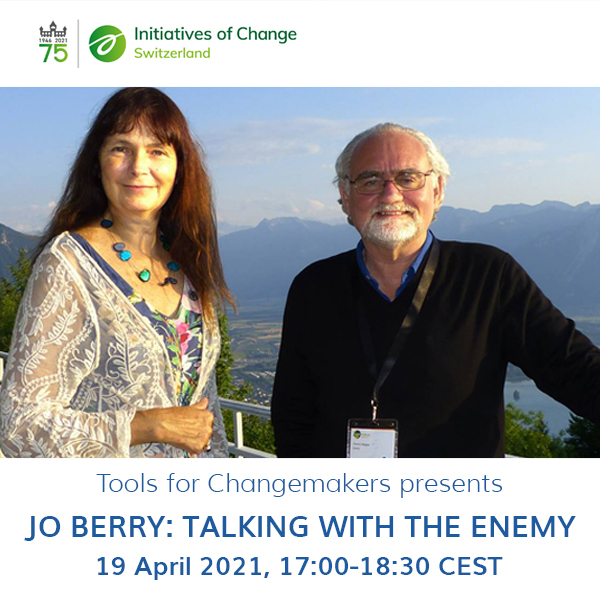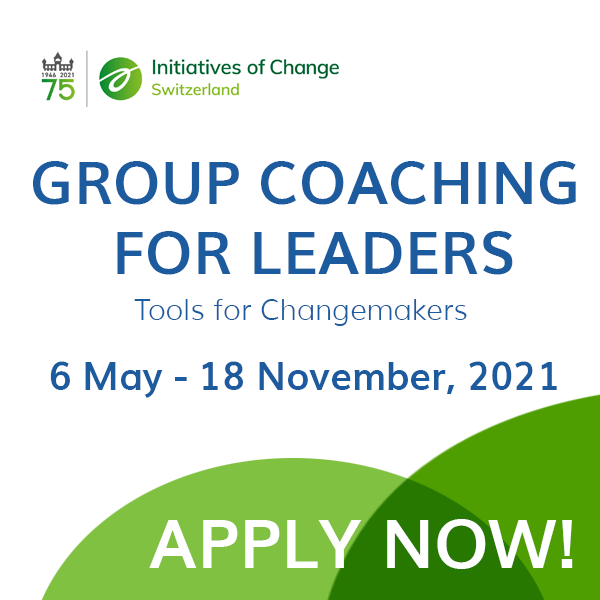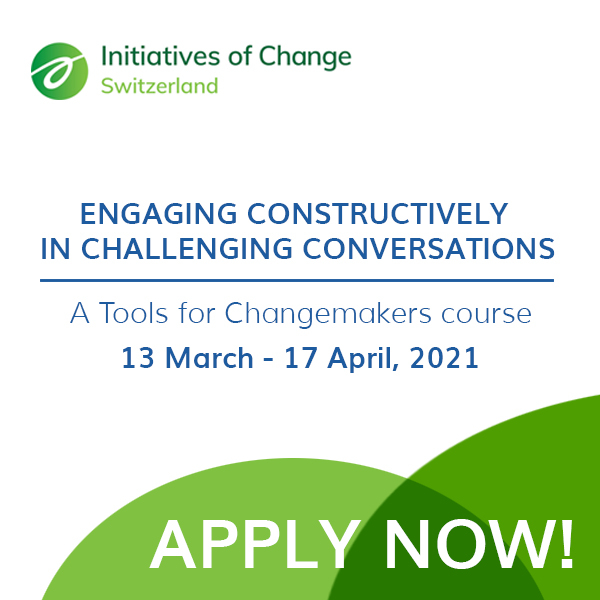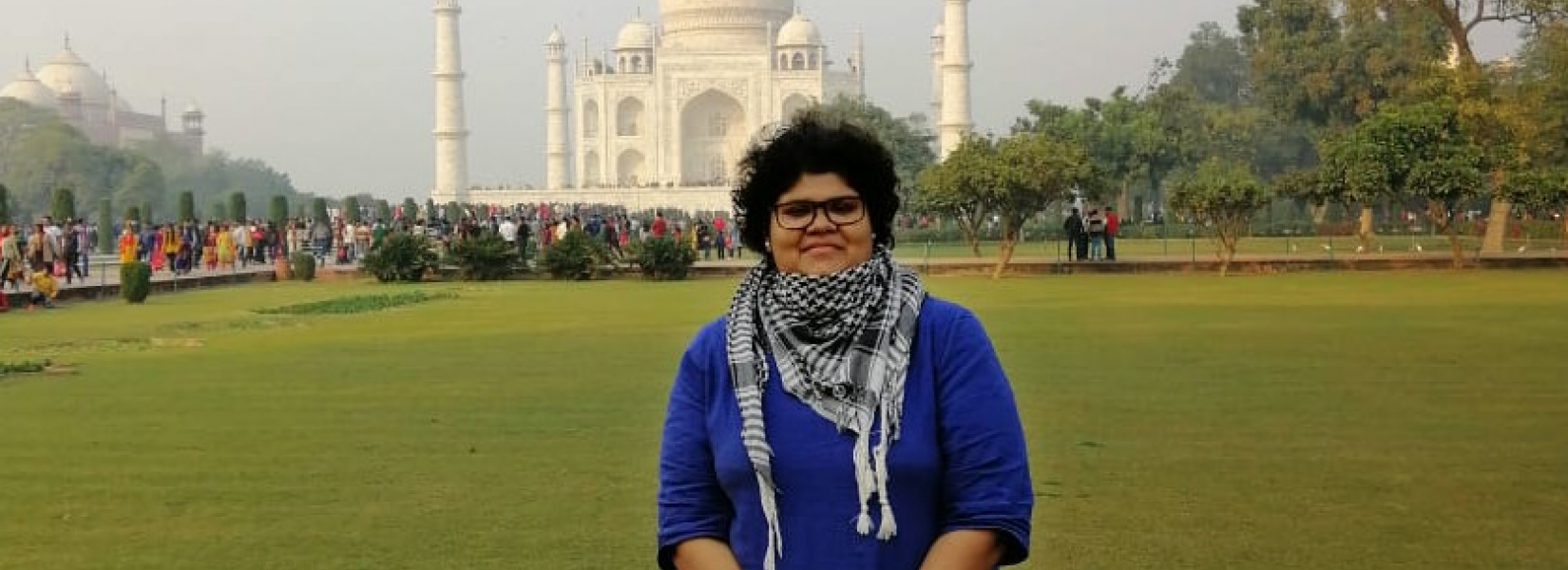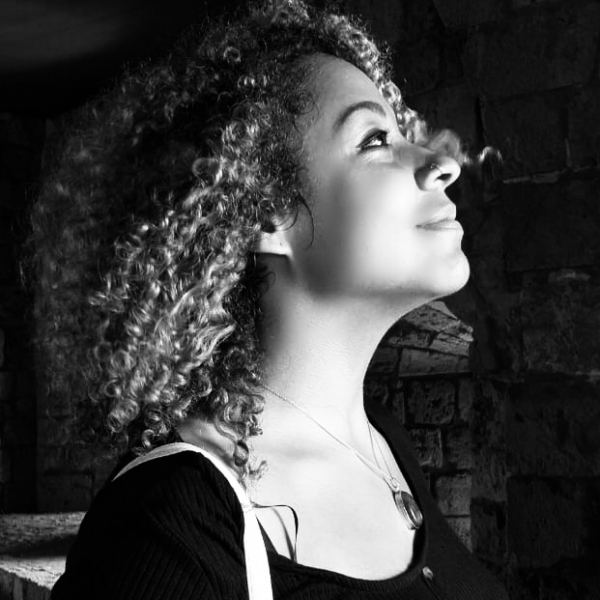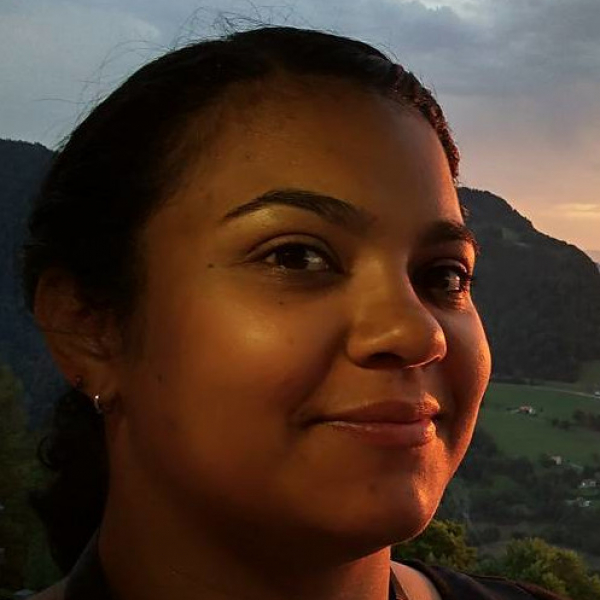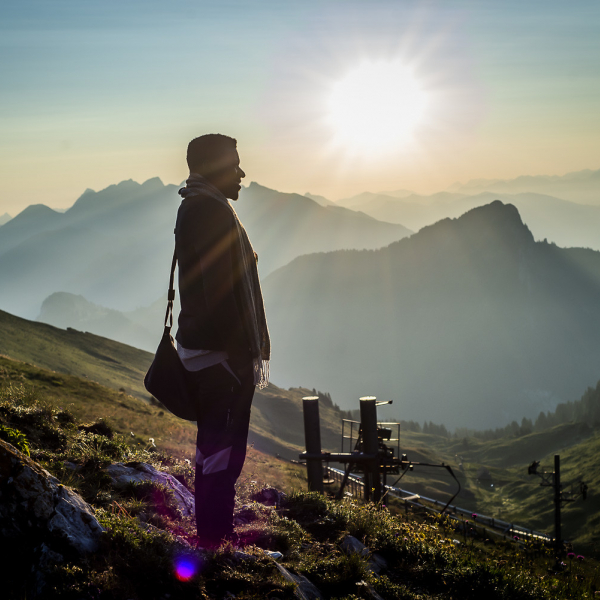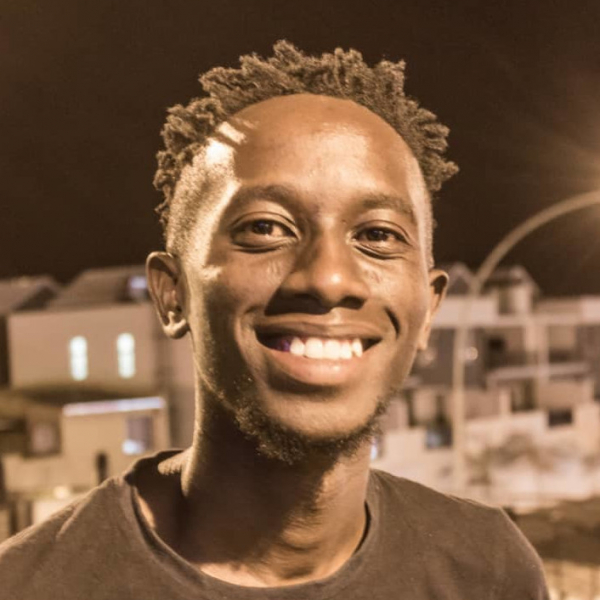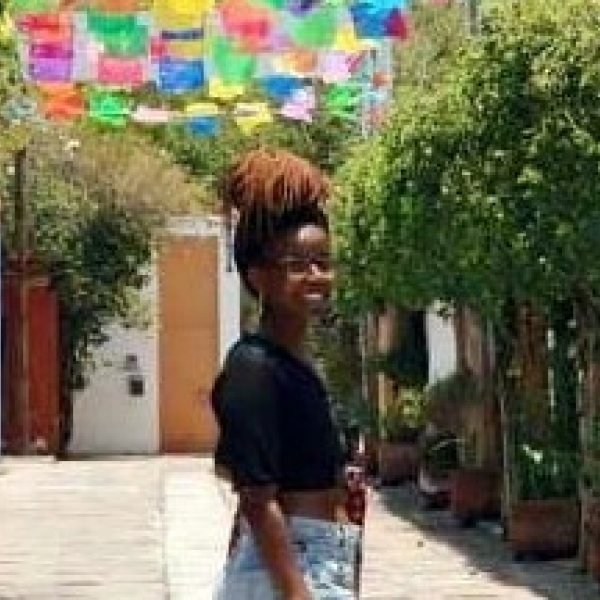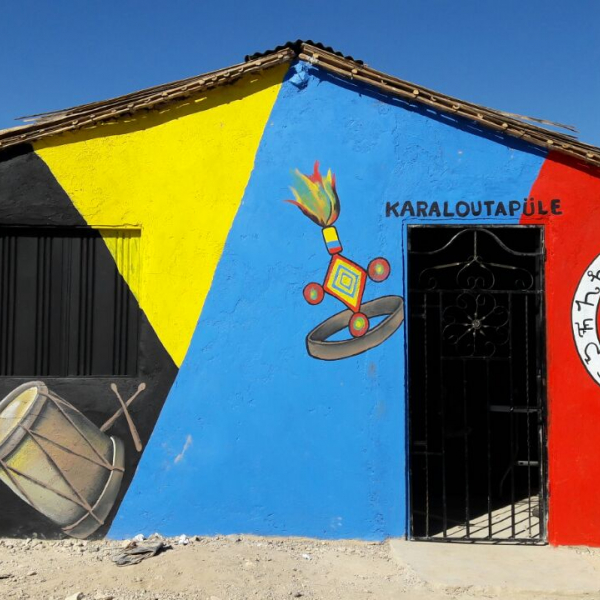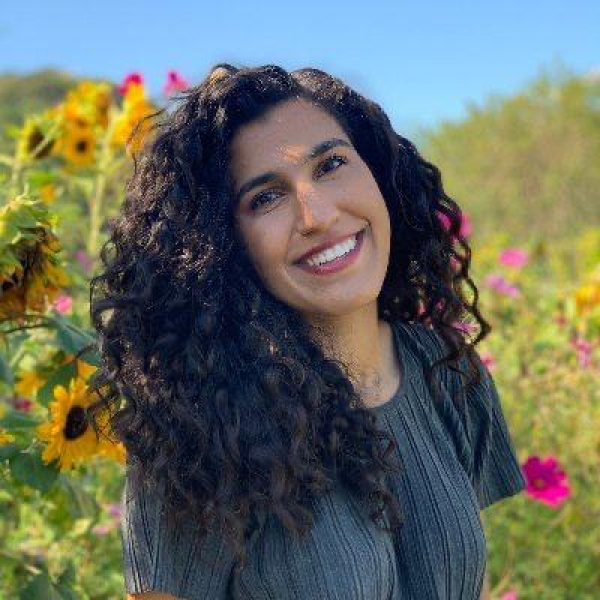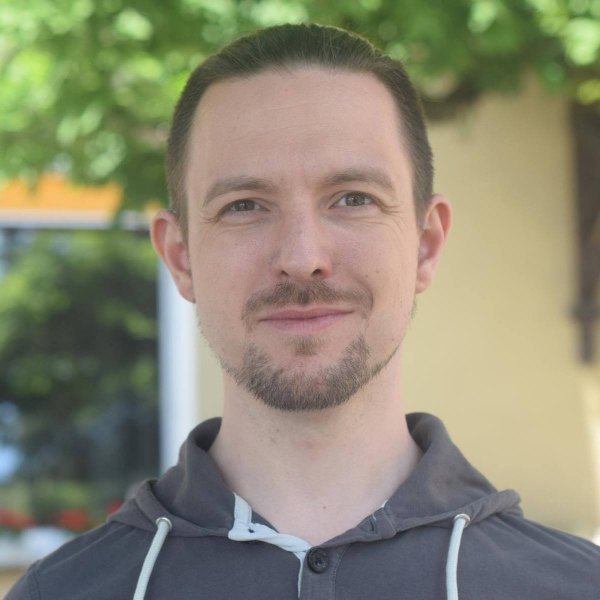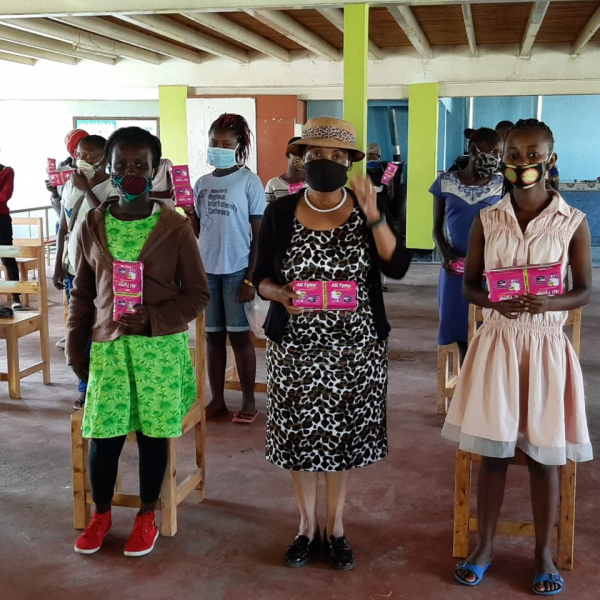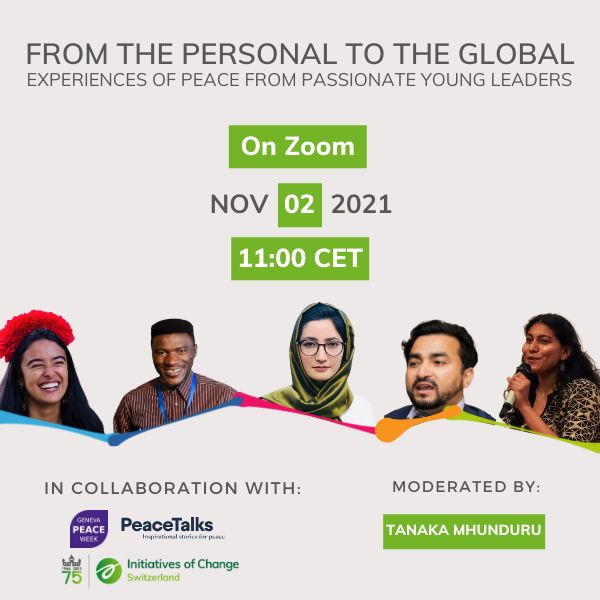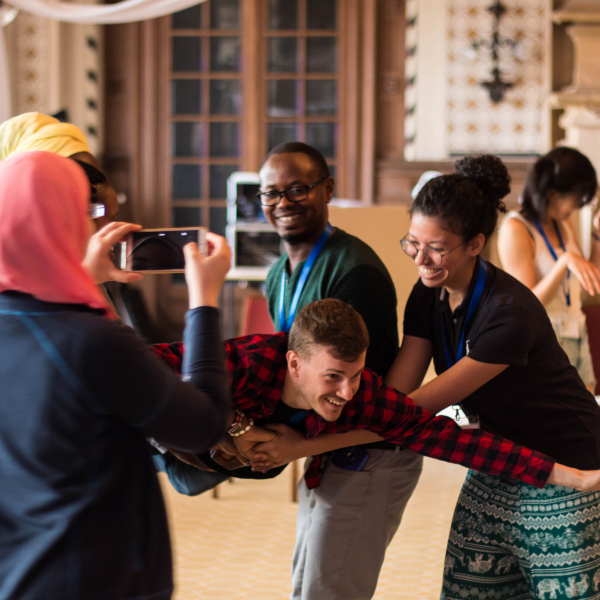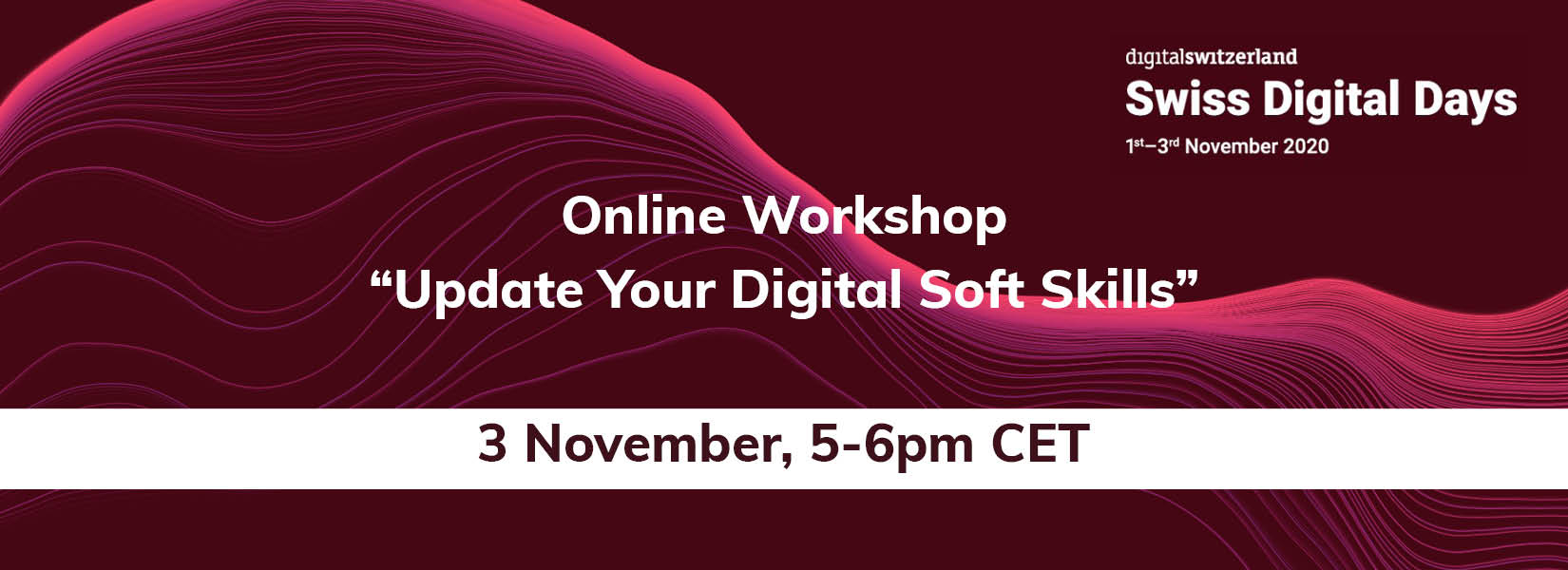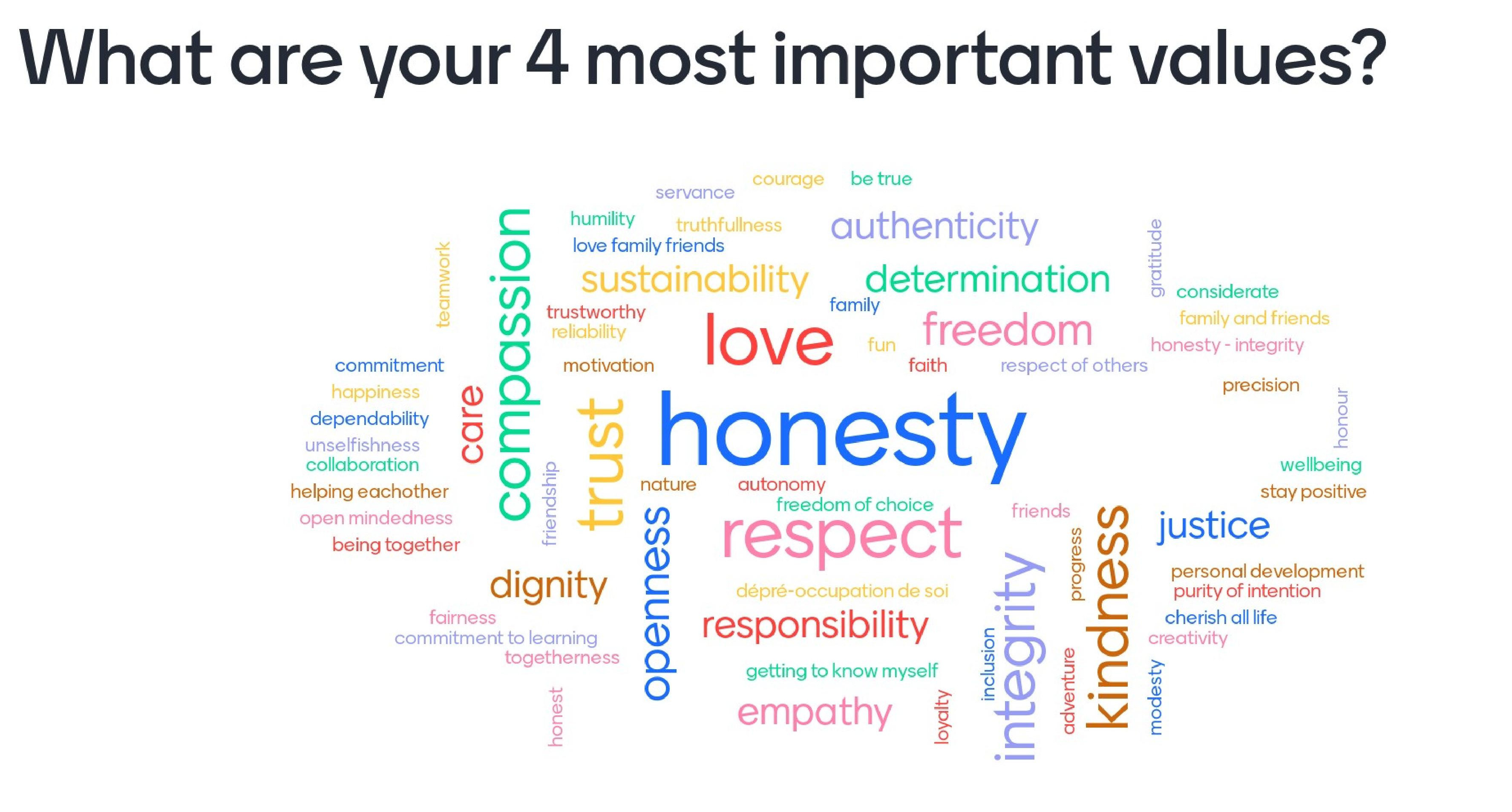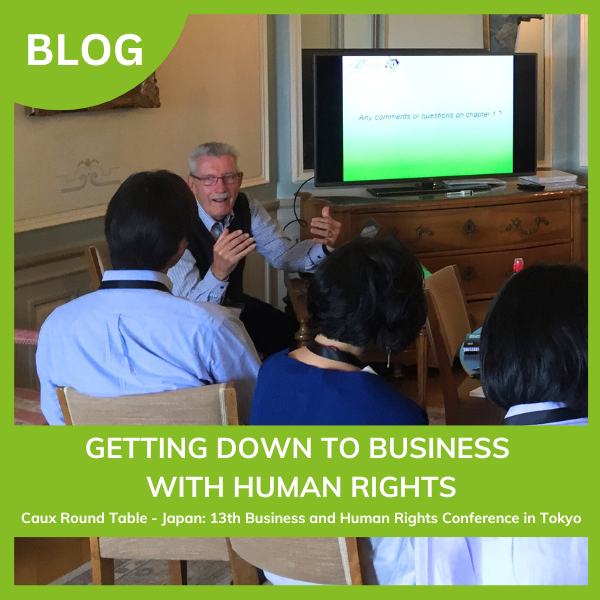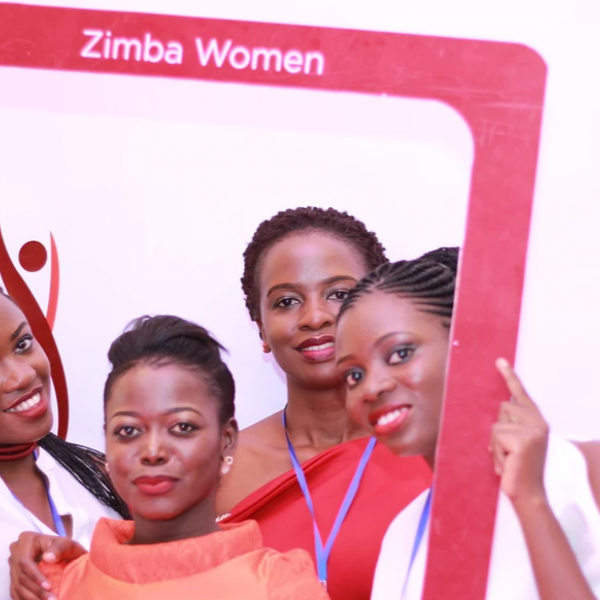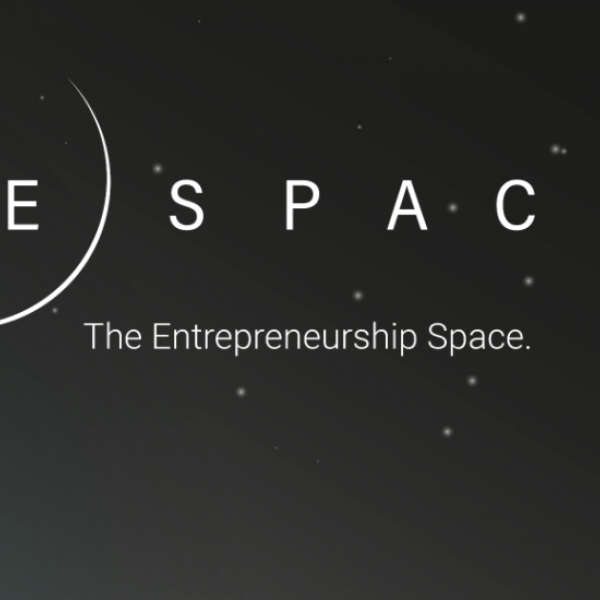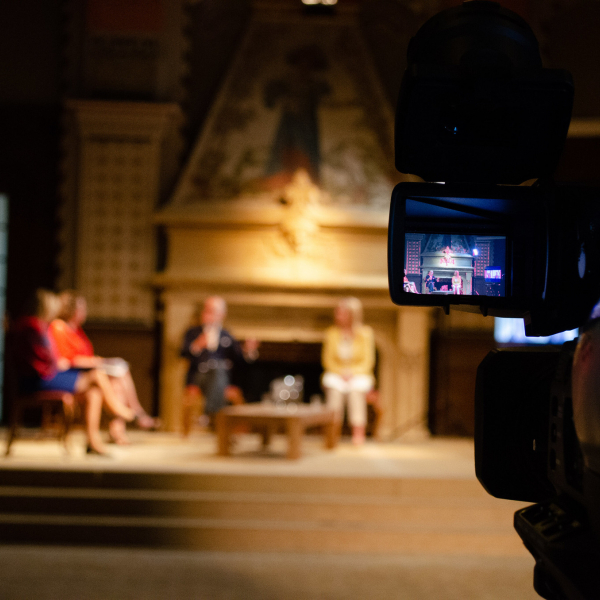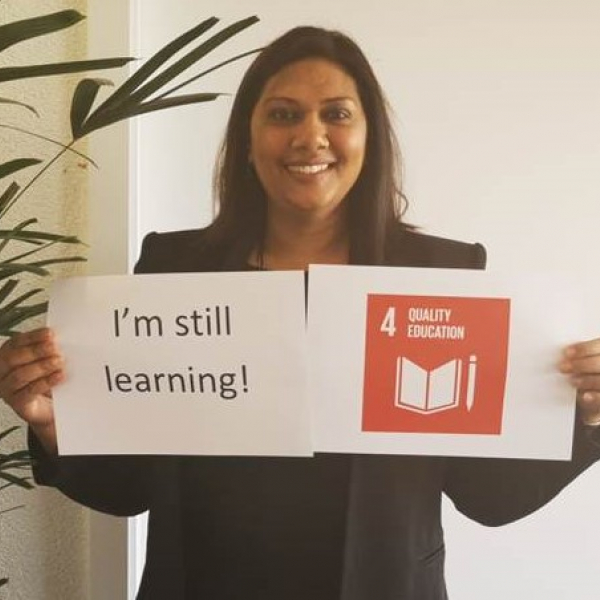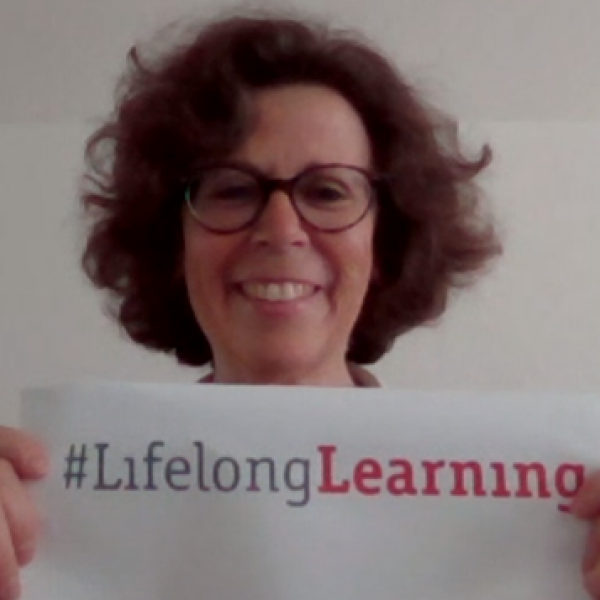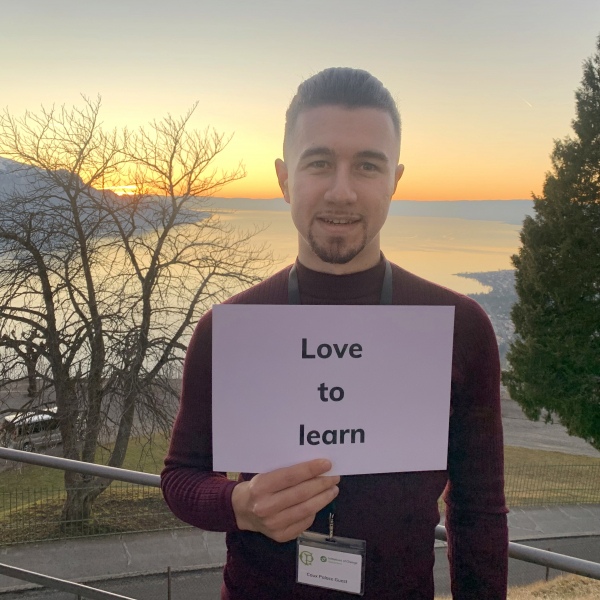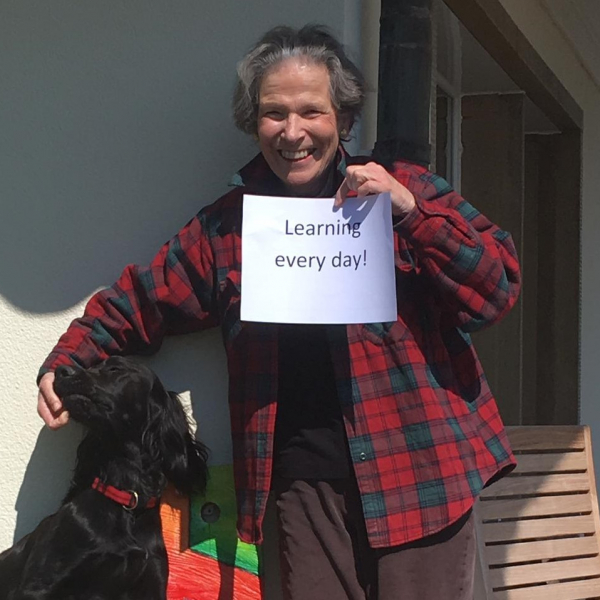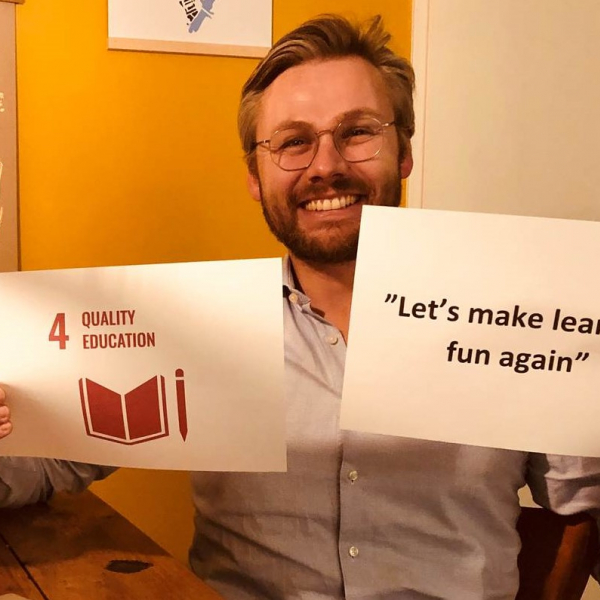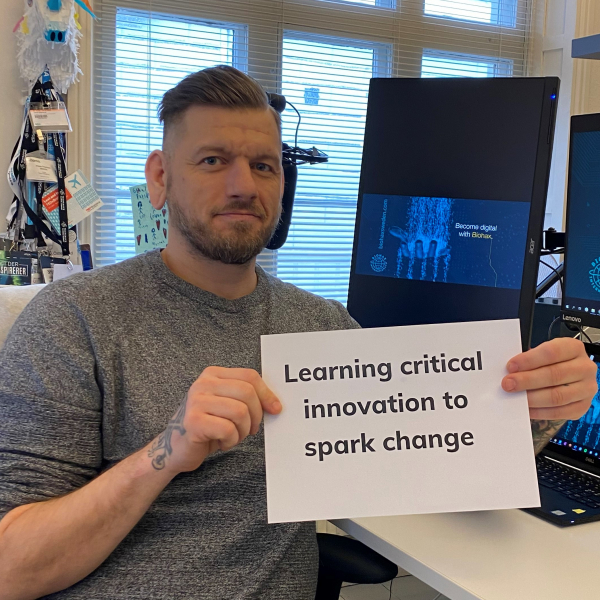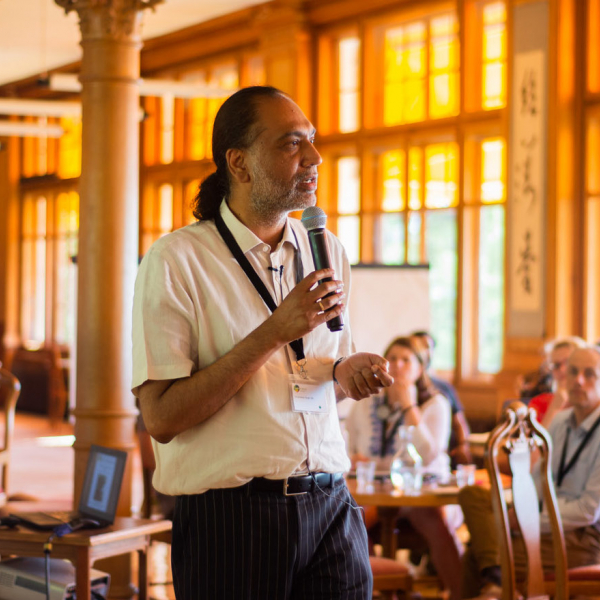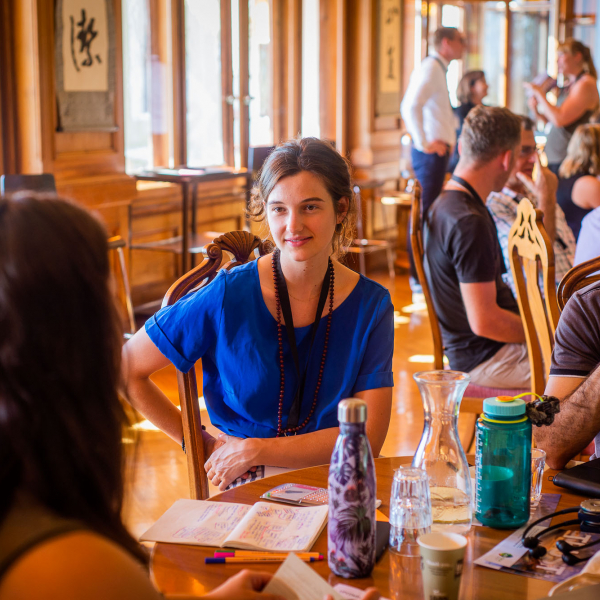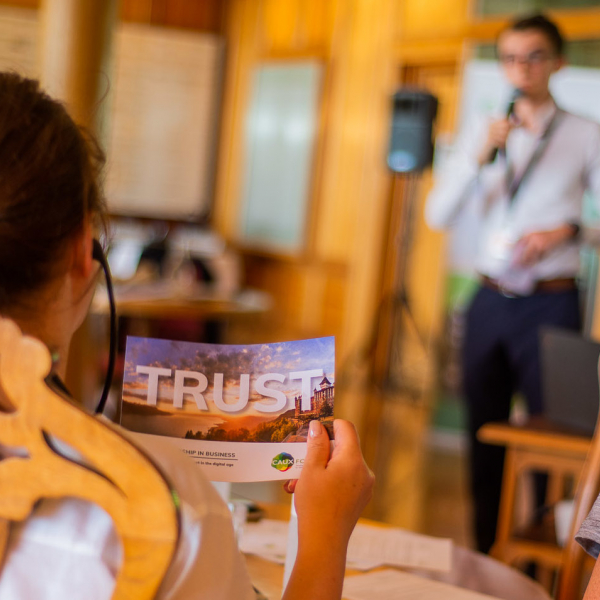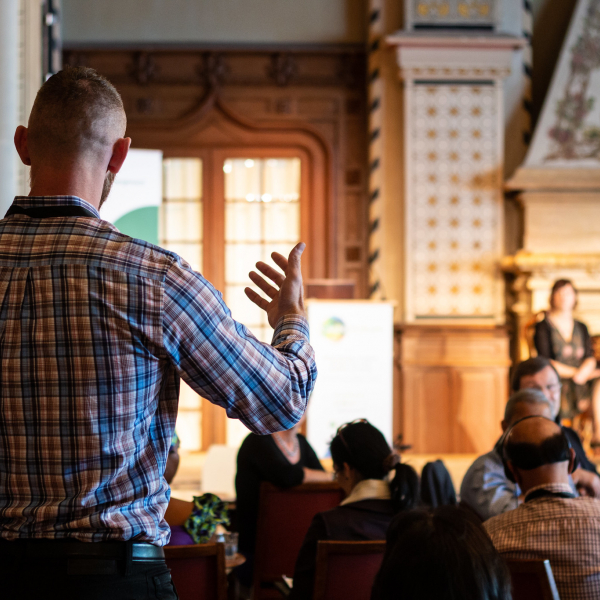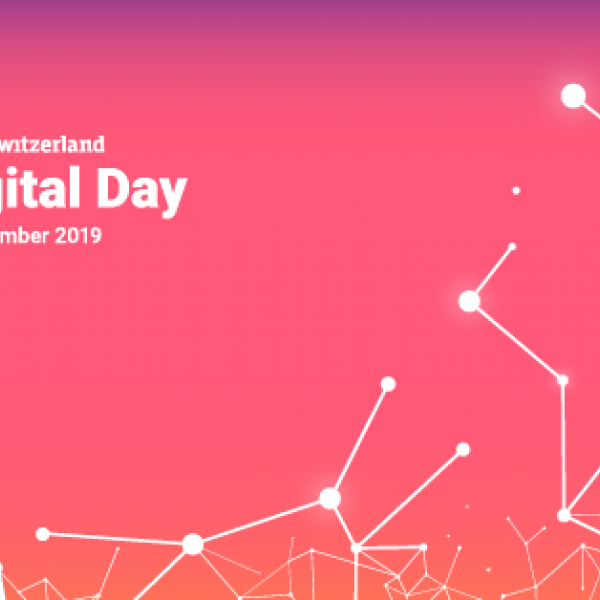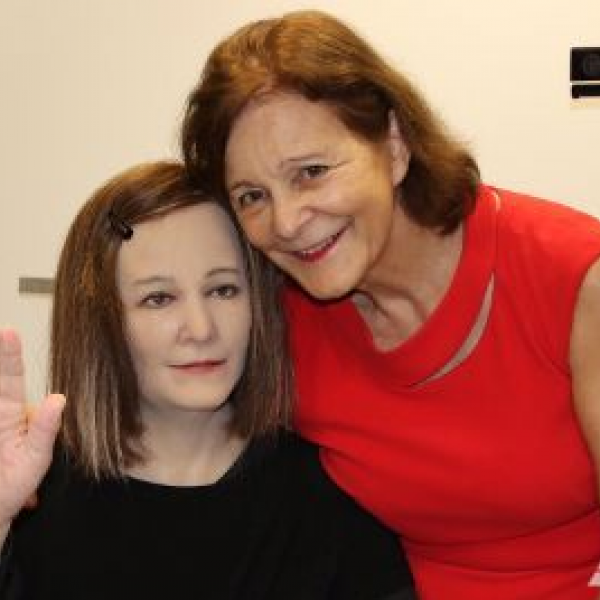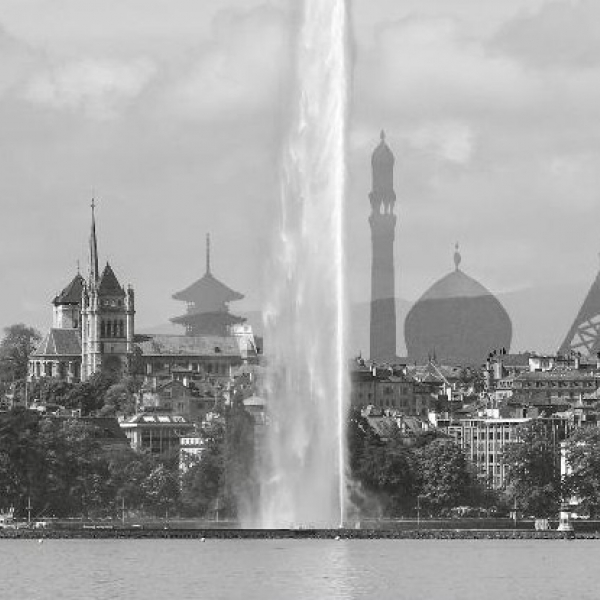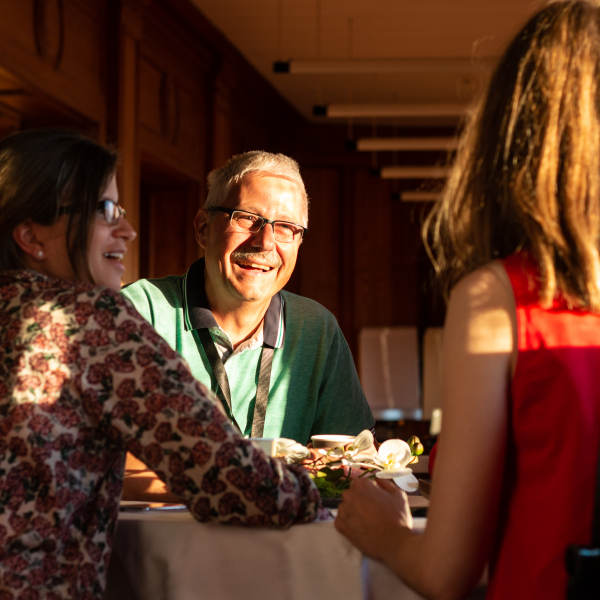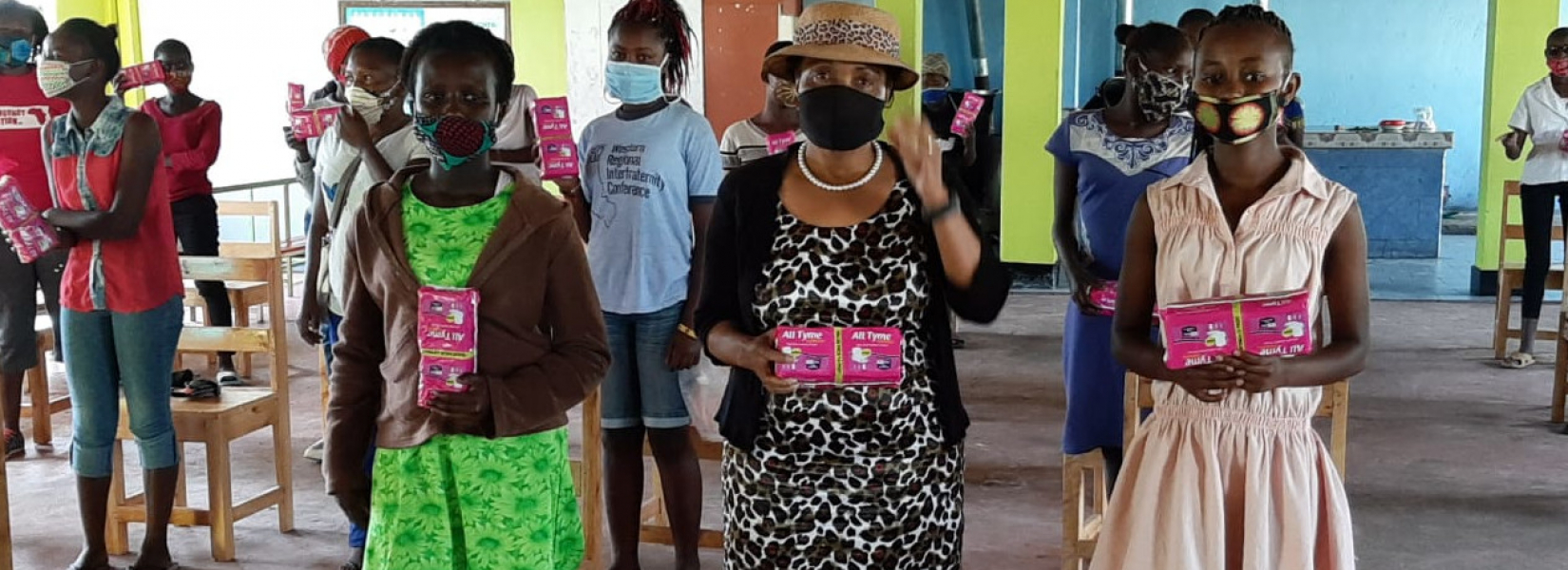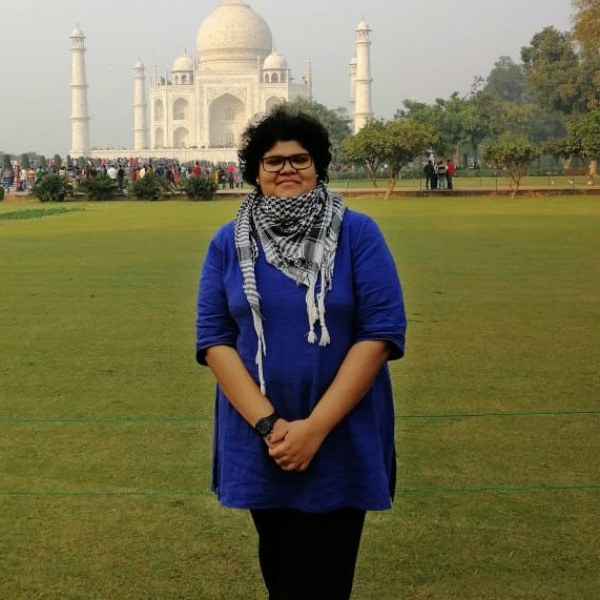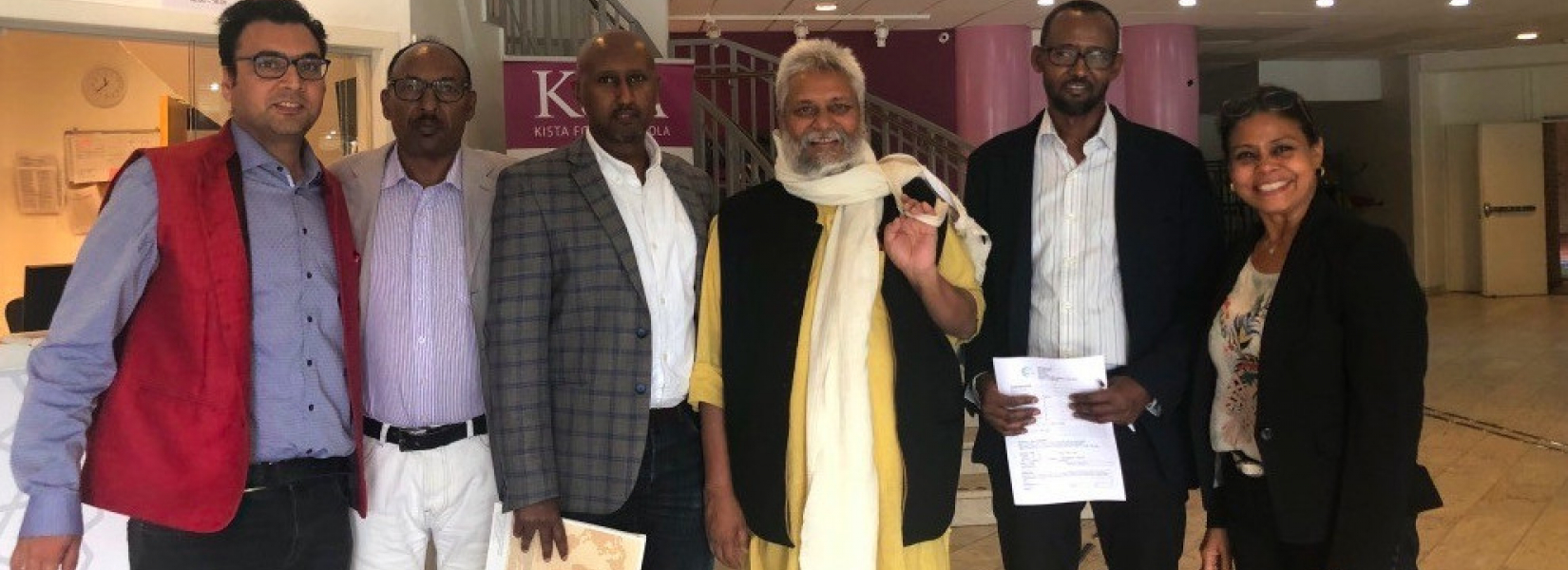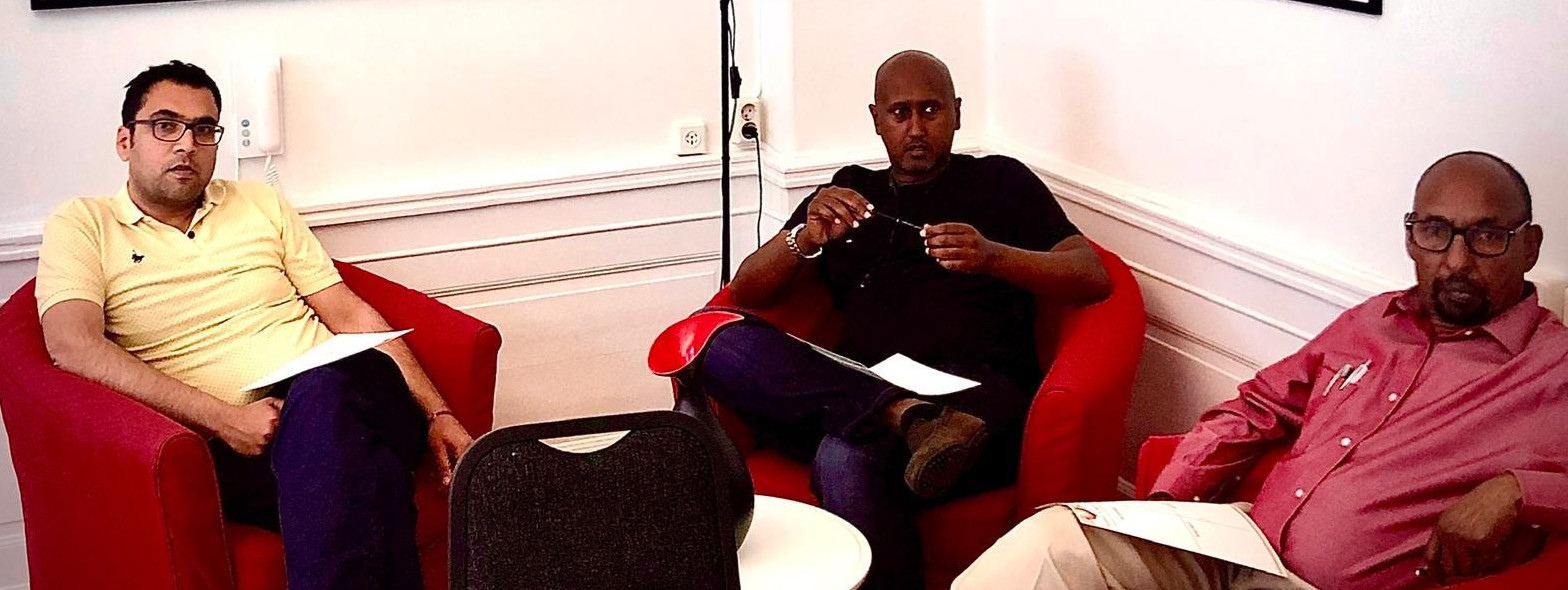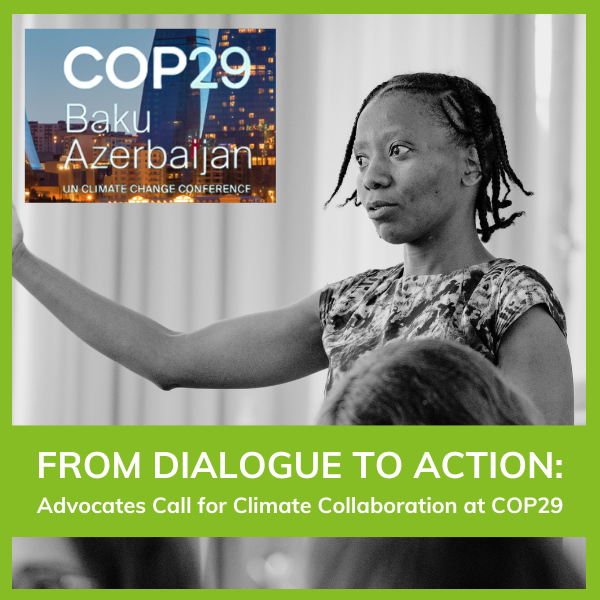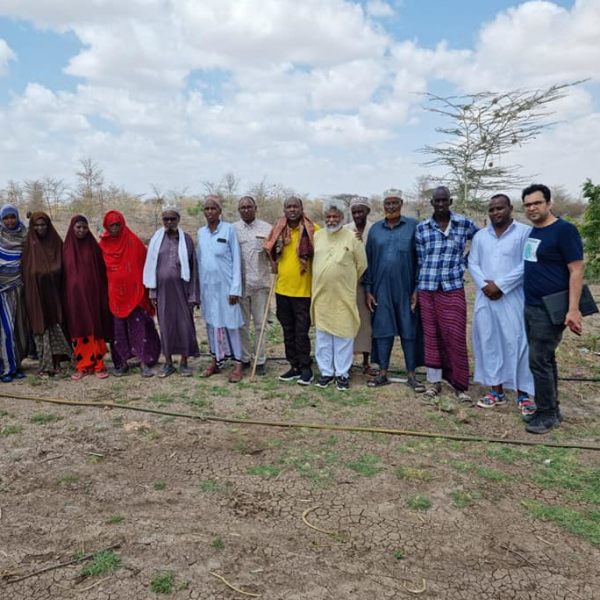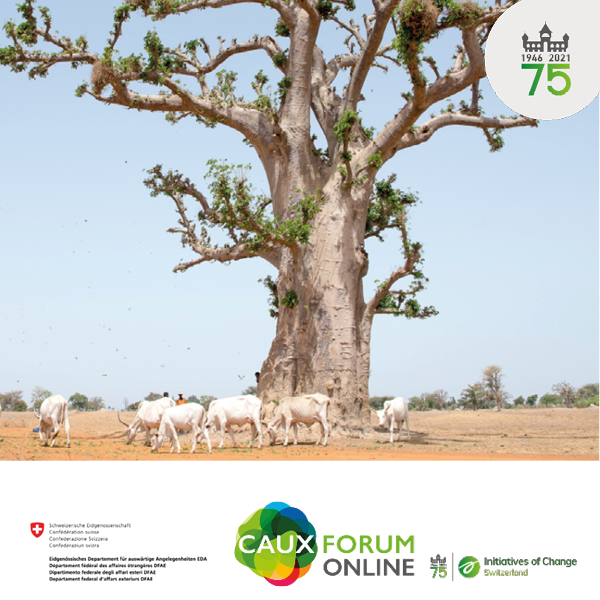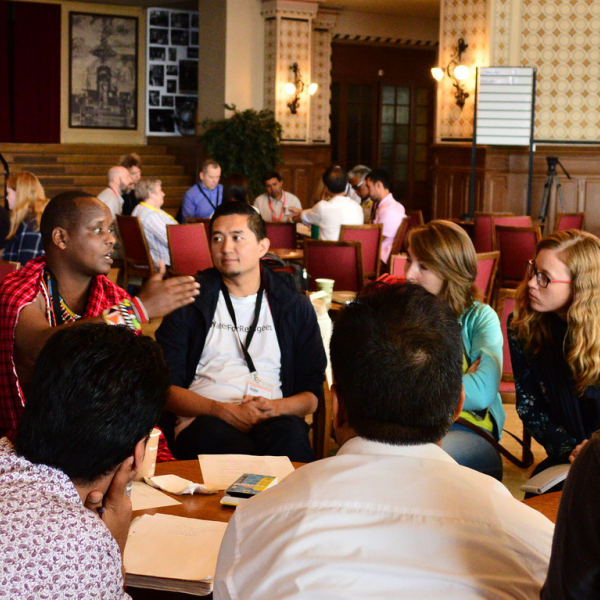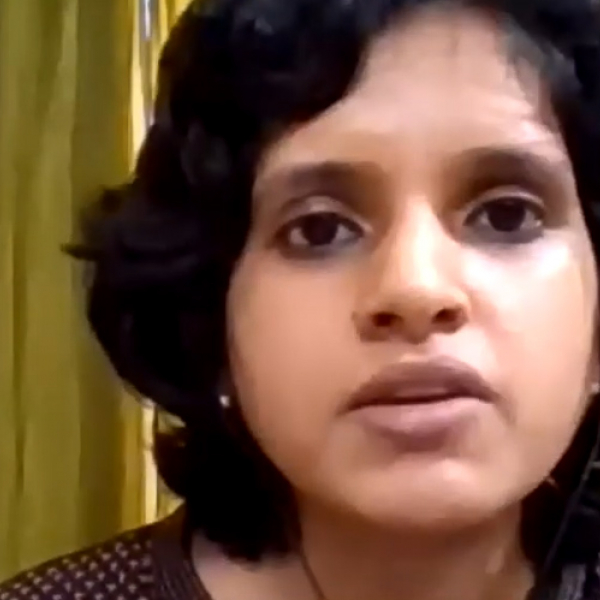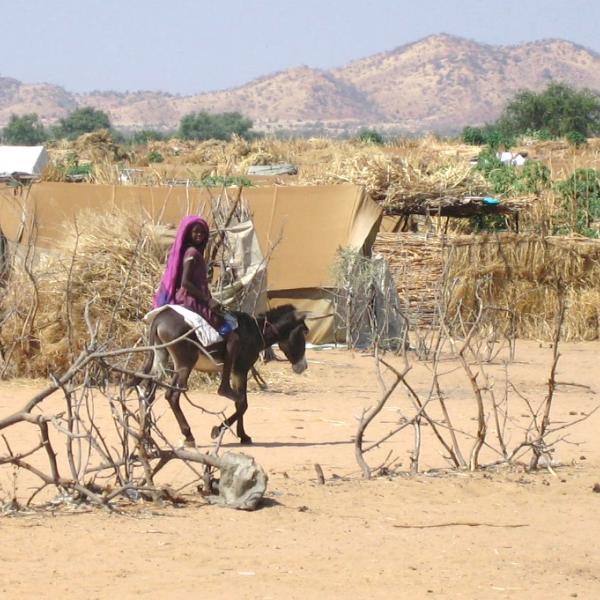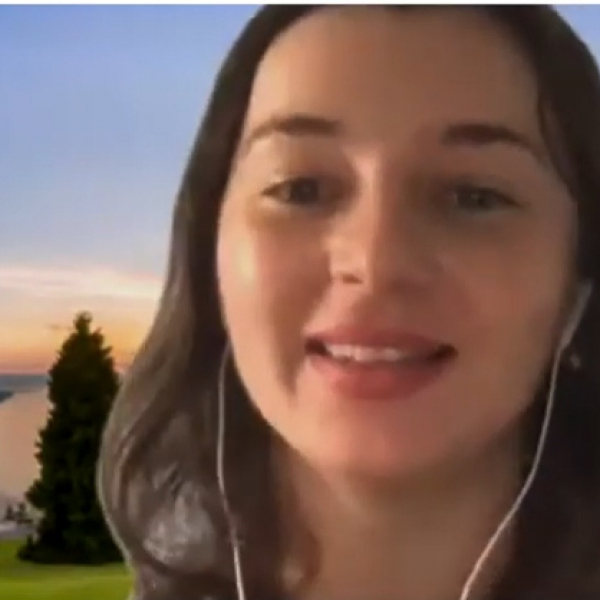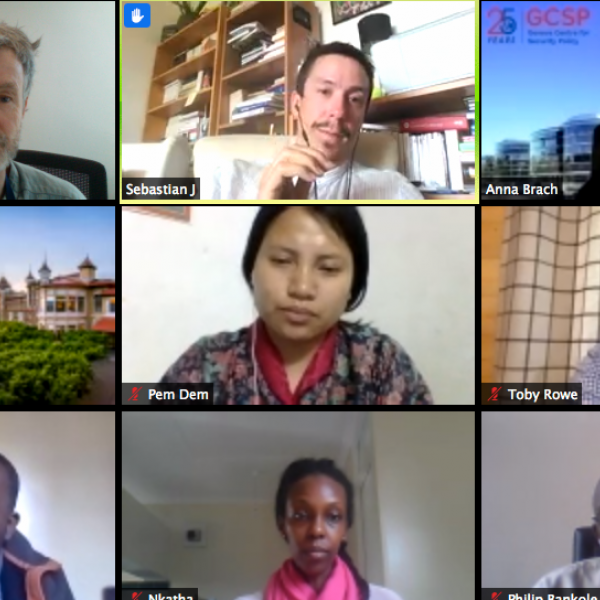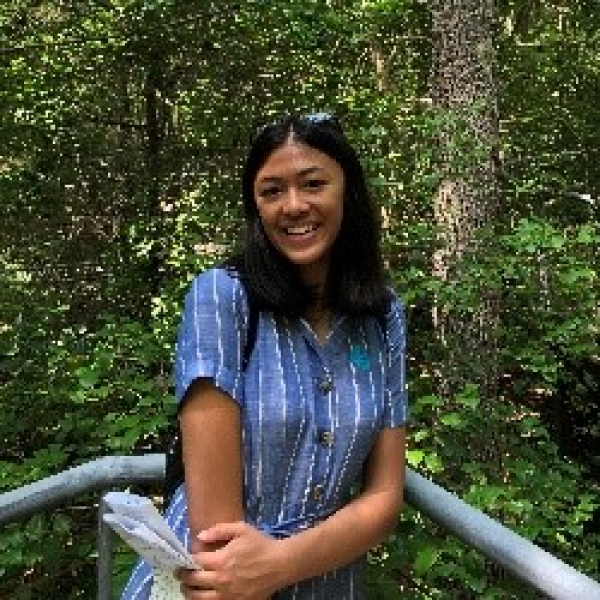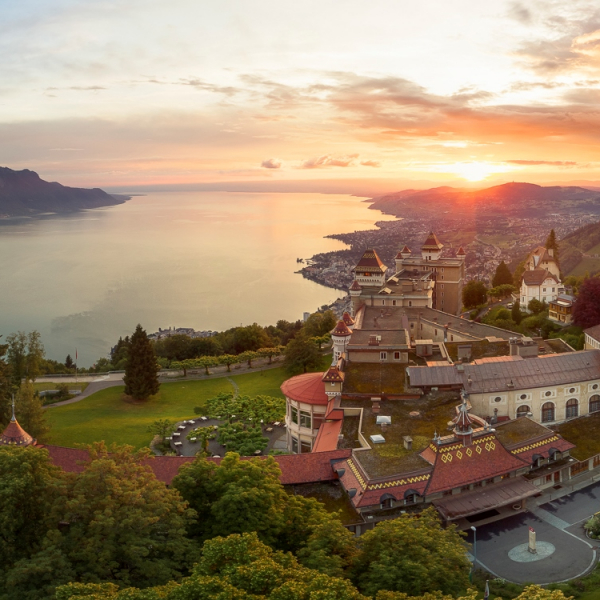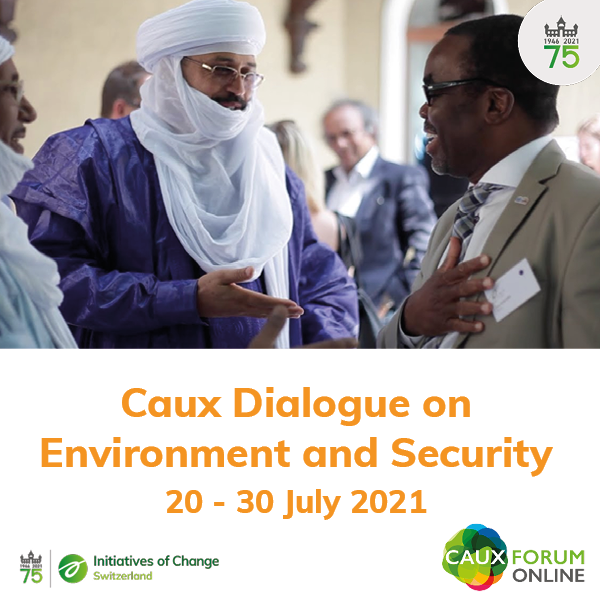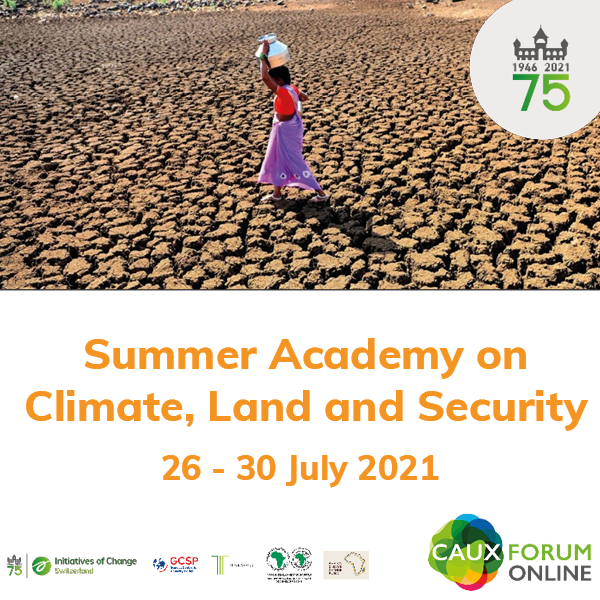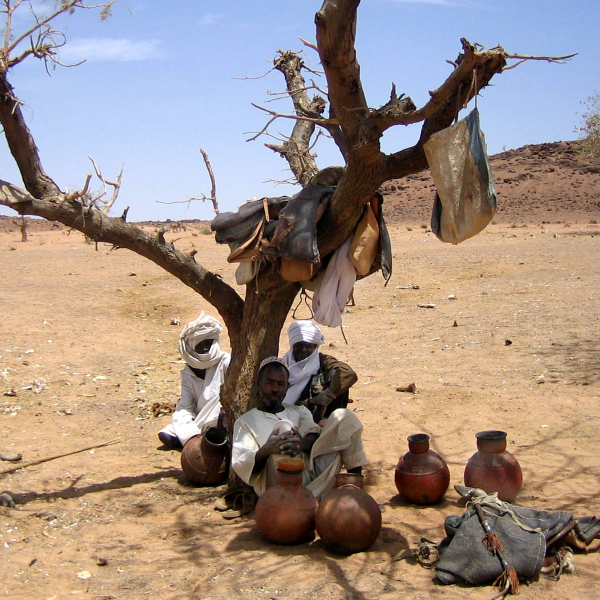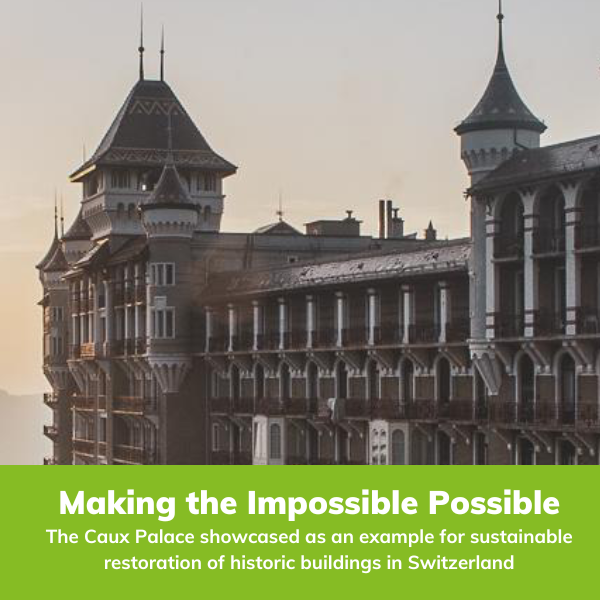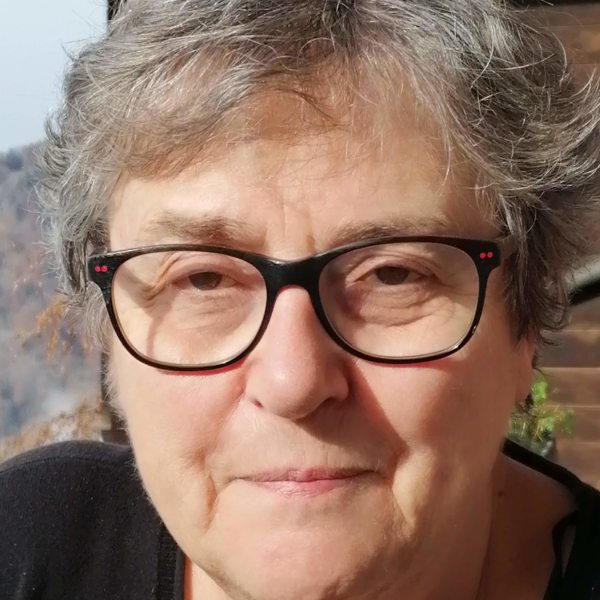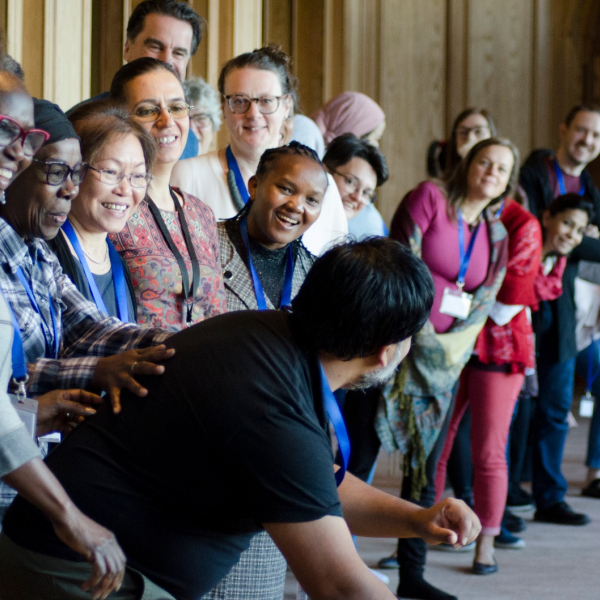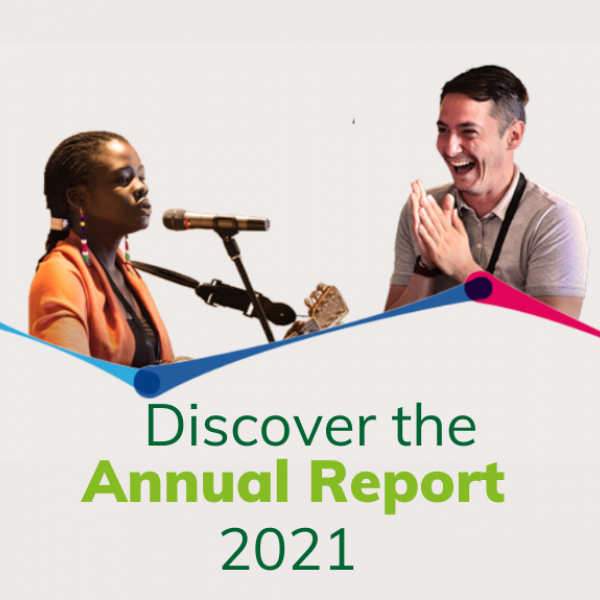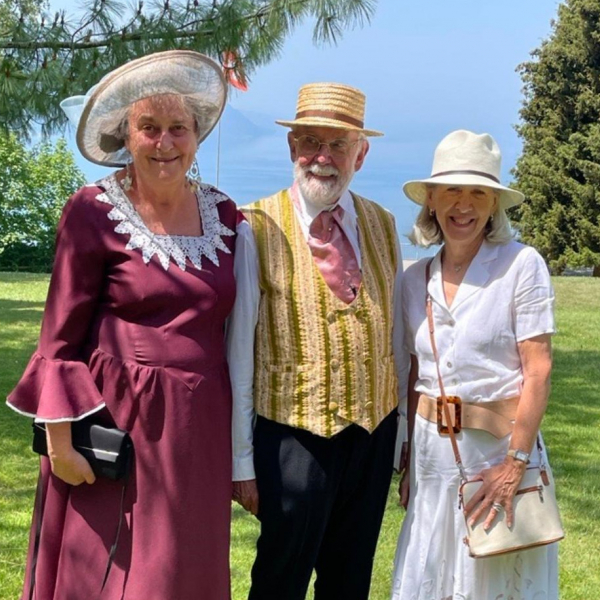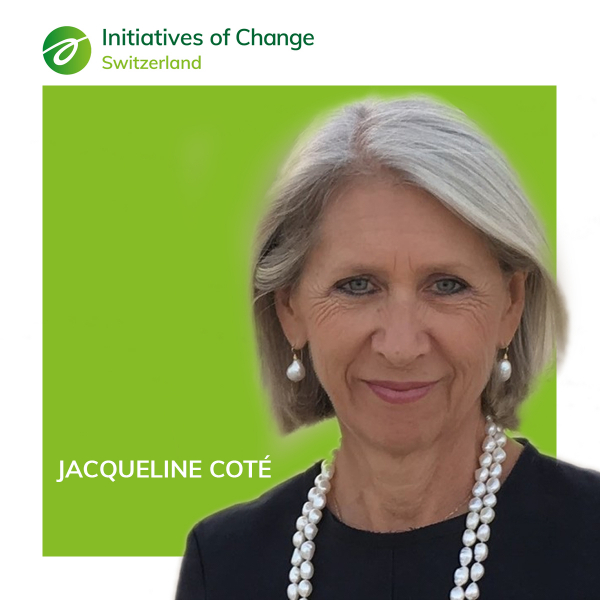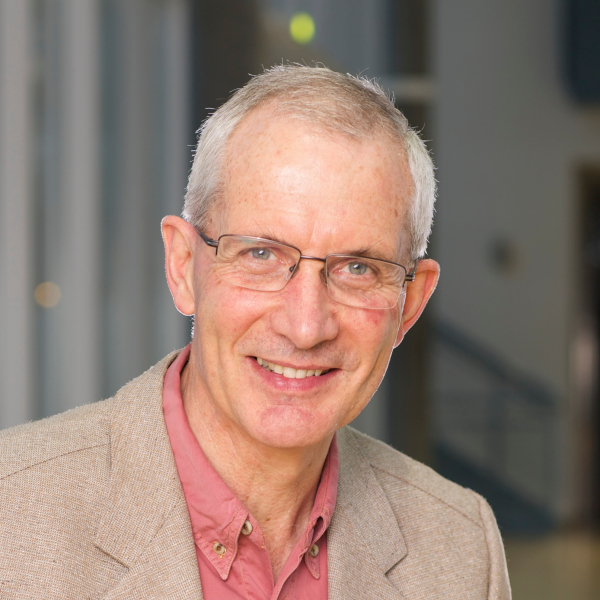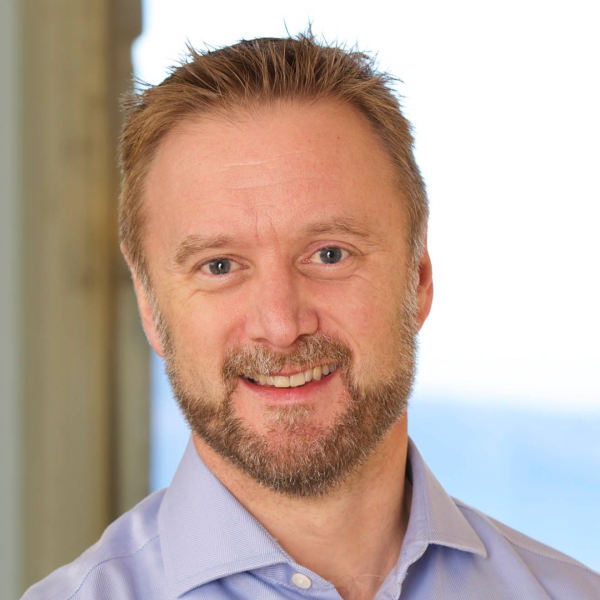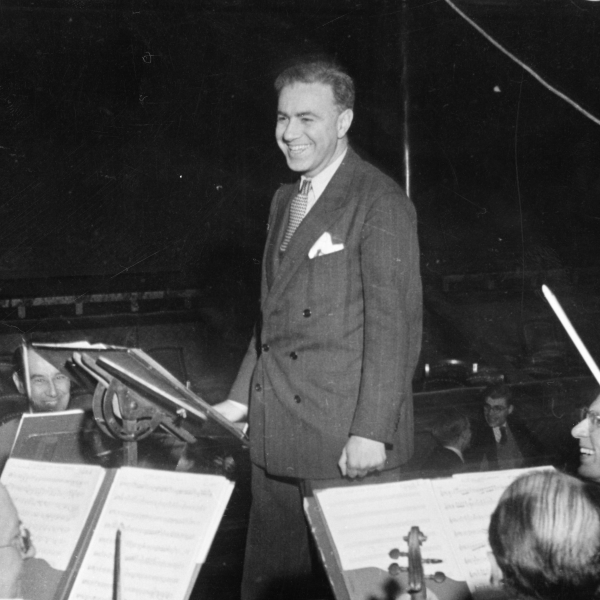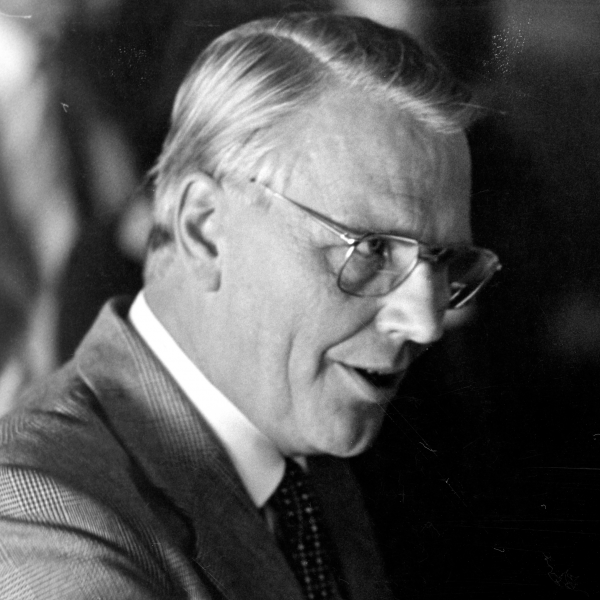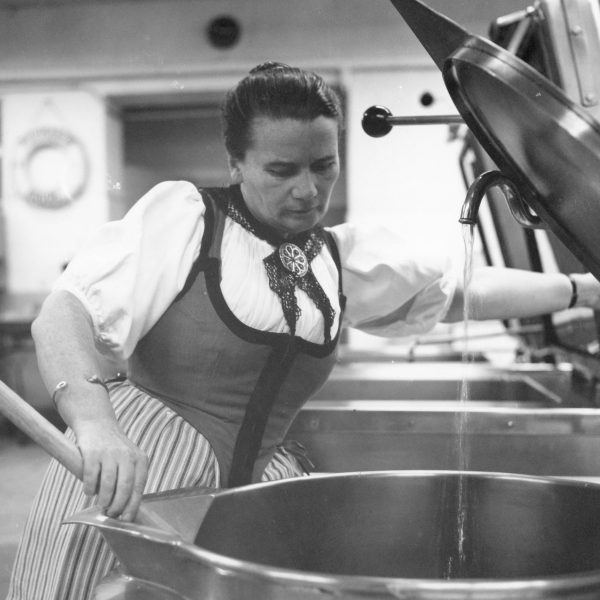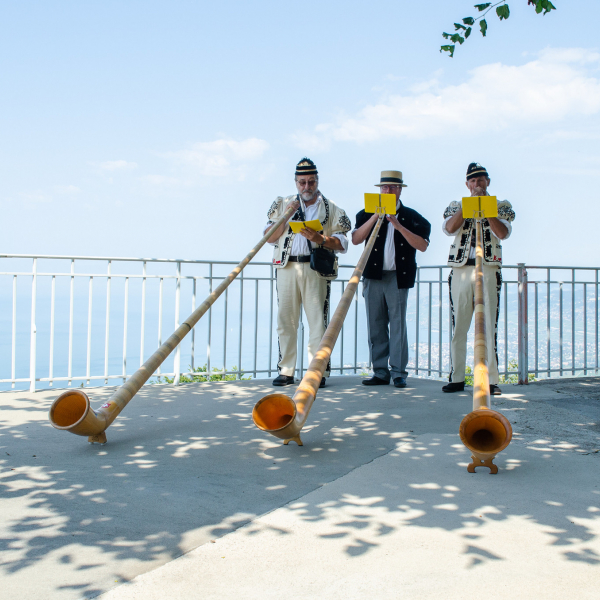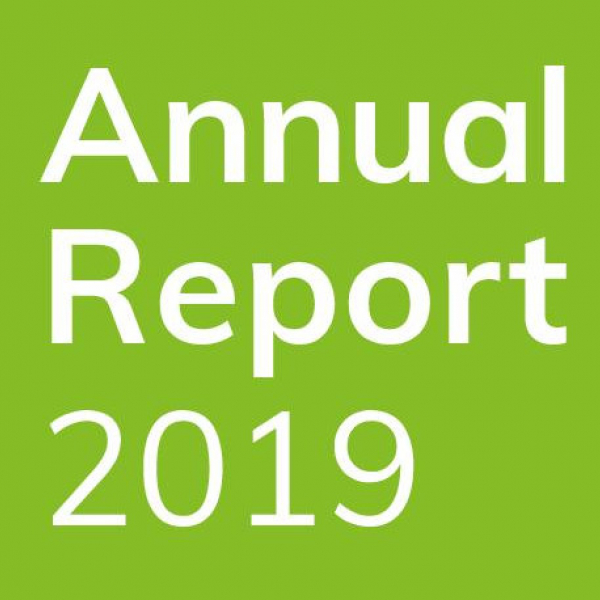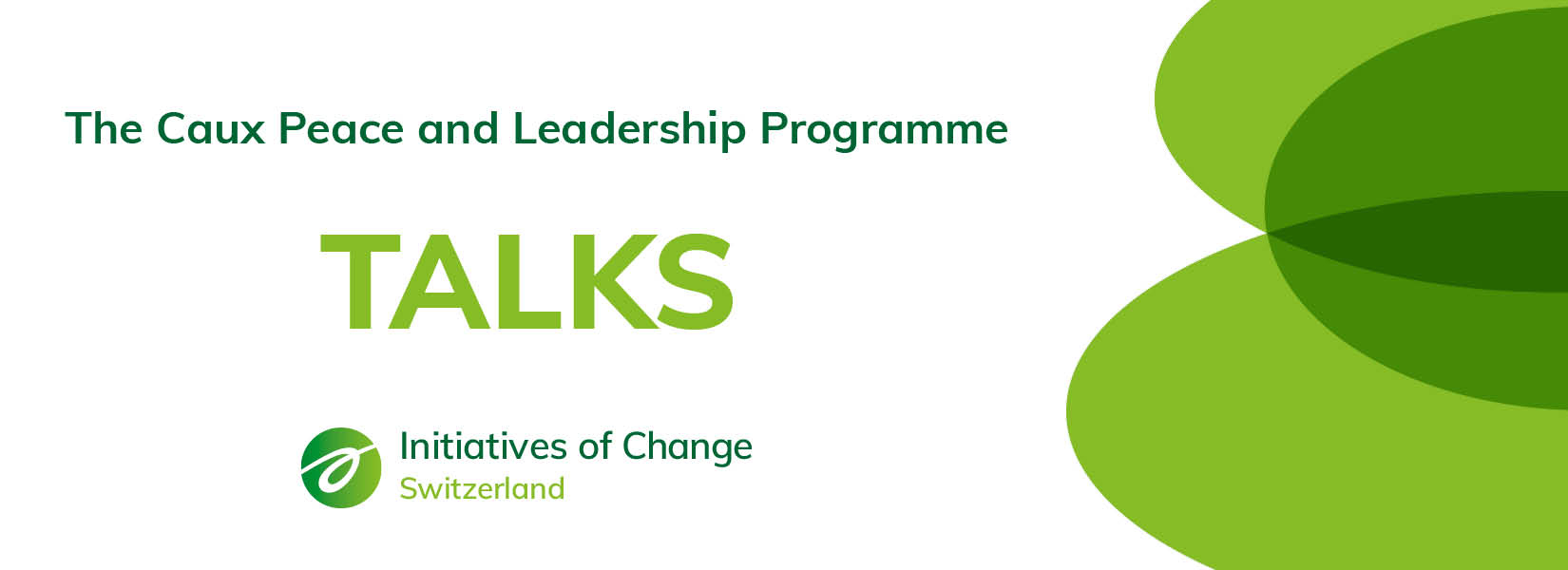The Courageous Listener: Bearing Our Own Discomfort
Geneva Peace Week 2020
06/11/2020
On 5 November 2020, Initiatives of Change Switzerland led an online workshop on the theme of listening as part of Geneva Peace Week 2020.
Listening is a powerful tool that can have powerful effects on its recipient. It is also a difficult one to master. Workshops on listening often focus on how we can become, and remain, more present to the other person. But it is also important to be present to oneself, as listening to difficult stories can lead to distress, anxiety and full-blown burn out. As peacemakers often find themselves on the listening side of the table, this workshop put the spotlight on the listener rather than the listened-to and provided some guidance on how to take care of oneself while listening to painful stories.
About 80 participants joined the workshop. After a short presentation of Initiatives of Change by the host, Diana Damsa, from IofC Switzerland's programme Tools for Changemakers, the two trainers, Neil Oliver and Agnes Otzelberger, introduced us to the topic. ‘Being a courageous listener does not mean being ready for anything,’ said Neil. ‘Rather, it includes listening to ourselves and knowing our limits.’ Listening can impact us deeply, but few humanitarian and social workers are offered the support they need to avoid burnout.
Agnes led us in a reflection exercise to explore what it is to be a listener. We were asked to go back to a time when we learned something difficult and to recall what we were thinking and what emotions and bodily sensations we were feeling. We were then invited to share our stories in pairs and to discuss what impact listening to a difficult story had on our minds, hearts and bodies.
Neil and Agnes then opened the discussion with everyone about how it was for us to listen with curiosity and presence. They provided helpful tips on how to develop empathy and cope with other people’s suffering. Agnes explained how coming back to the body, taking deep and slow breaths and even just moving the head from side to side can help.
One participant said: ‘This workshop showed me that other people feel exactly the same as me when confronted with difficult stories. It made me relate to them strongly and reminded me how to take care of myself to avoid feeling too vulnerable and hurt by what I hear.’
Another wrote: ‘I loved how interactive the workshop was, the general mood and atmosphere. It was really heartwarming and inspirational. I learned a lot.’
The organizing team hopes to offer more workshops to support peacemakers who too often experience empathic distress and compassion fatigue.
This workshop showed me that other people feel exactly the same as me when confronted with difficult stories. It made me relate to them strongly. - Participant
Find out more about Tools for Changemakers
The courage to offer hope
Harshani Bathwadana, Sri Lanka
06/11/2020
Harshani Bathwadana from Sri Lanka was part of the Caux Peace and Leadership Programme. She describes how she found the hope to bring hope through education to thousands of girls.
My story is about going from not having hope to bringing hope to others.
I belong to a generation which was born into an armed conflict. Even though we were not directly affected, it was a life where you lived one day at a time – if today goes right, we’ll think about tomorrow. Having a father who was a teacher, we were brought up to believe that education was the only path out of our situation, so studies were my main focus. Being the elder child in the family brought a set of responsibilities to be aware of what I did.
Teenage years were difficult due to loss of a parent, which meant taking more responsibilities in the family. Not knowing how to balance the newly gain role with studies, there were many times I felt I was lost. I felt numb for a long time, unsure of exactly how I was feeling and hiding my feelings from my peers. I wore different faces, to match the expectations of my family, friends and society. Having good grades was always a good distraction, everyone celebrated my academic achievements and my hidden feelings slowly disappeared into the background.
Time passed and here I am, with my Masters degree and a managerial job which I landed at the age of 25. Did I plan for this future? Did I have any hope of this? I am still trying to figure out what hope means.
The opportunity to be a part of the Caux Peace and Leadership Programme (CPLP) came unexpectedly. A friend, who saw how I was losing myself every day, encouraged me to apply, promising that Caux provides a safe space for everyone to find themselves. ‘There is something for everybody there,’ he said. He was right, CPLP made me the person I am today. It gave me the space I needed to be who I am. It gave me the people who are around me today. Most of all it showed me how to love and know myself. It was a life-changing experience – a transformation from not knowing to knowing, from not feeling to feeling, from not hoping to hoping.
During a job placement in Afghanistan I met a young woman about 14 years old, whose family had been terribly affected by the war. At the end of our conversation she told me, “Seeing you here makes me feel safe, it shows me that I’m not alone. There is a world out there which cares for me” In my perspective I did nothing. I was there because it was my “Job” but she saw a person beyond the officer who was talking to her.
Her statement made me think a lot which transformed my perspective on life. Her story of survival and the needs she told me about shook me to my core and showed me how privileged I was. It pushed me to pursue that which I felt was meaningful to fulfill the purpose of my life. How much could I leverage from all the people and opportunities I had, in order to bring meaningful change to someone? What could I do to make a difference?
Change one life and that will bring change to thousands.
After moving back to my own country, it was all about finding an opportunity which would allow me to engage in activities that would change people’s lives. My search led me to an International Non-Governmental Organization, Room to Read, which works in the field of Literacy and education, supporting girls to stay in school, that they get the much needed support to ensure they reach their full potential as human beings.
The power is in the testimonies of the work which we do. When a family comes and tells you that their daughter is the first in the family to finish secondary education or maybe the first to enroll for university, it is difficult to keep the tears in. Life is not about ticking boxes that make you acceptable for the people around you. I feel that life is actually about knowing your heart and following it to wherever it takes you.
Bringing hope to people and to oneself needs a lot of courage. Courage can’t be found unless you have a motivation. Thanks to a young girl who shook me to my core I could find that courage to see what I needed to do. I was able to ask for help, for guidance for support. And I was able to unleash my bottom drawer knowing that nobody would judge me. Because of one girl’s voice I’m able to bring hope to thousands of girls.
Be that girl for someone! Change one life and that will bring change to thousands.
If you want to be part of an online follow-up conversation with the CPLP Alumni and learn more about Harshani's story on Saturday, 21 November 2020 at 14:00 CET (13:00 GMT), you can sign up through this link.
You will find the terms and conditions here.
Find out more about the Caux Peace and Leadership Talks here.
After registering, you will receive a confirmation email containing information about joining the meeting.
Swiss Digital Days 2020 - Online Workshop: Update your digital soft skills
05/11/2020
Initiatives of Change Switzerland held a one-hour online workshop on 3 November 2020 on the topic of soft digital skills.
Digitalization has been taking place for years, but with the rise of the pandemic in 2020, many of us have seen our screen time explode. The use of messaging services and social media has increased by 45 per cent worldwide. To adapt, we have had to develop new hard skills and learn how to use new technologies. But have we also updated our digital soft skills?
Soft skills are non-technical skills that relate to behaviour. Emotional self-regulation, critical thinking, empathy and respectful communication are valued, especially in the work environment. As we spend more time online, it is important to bring these soft skills with us. This workshop invited participants to reflect on whether their online behaviour was in line with their core personal values.
Forty-four people from all over the world took part. After meeting fellow participants in small virtual hang-out rooms and after a brief introduction from Annika Hartmann de Meuron, Programme Manager of Ethical Leadership in Business, we were invited to become aware of our digital habits by answering a poll.
It included such questions as ‘Do you spend more time with “virtual people” than real people? Do you keep checking your phone because you have FOMO (fear of missing out)?’
The session was moderated by Rainer Gude, Co-Director General of IofC Switzerland, who read us a short story about James Bond in lockdown, spending a lot of time on his digital devices and wondering whether he was making the best use of them. After a self-assessment of what values were most important to us personally, we reflected in silence on whether our online habits were in line with them. We then shared our insights with other participants in break-out rooms.
People of all ages from all over the world engaged in a lively discussion on digital habits. We hope the workshop will inspire many to cultivate their digital soft skills.
Lean more about our programme Ethical Leadership in Business.
Image values: Mentimeter
Freeing girls to study
Redempta Muibu, Kenya
03/11/2020
Redempta Muibu from Nakuru, Kenya, describes how taking part in the Caux Peace and Leadership Programme in 2015 inspired her to set up the Free the Girl Initiative Project, which provides sanitary pads to girls who would otherwise stay away from school.
One act of compassion continues to have a great impact on my life.
I am passionate about the plight of underprivileged and vulnerable girls, who are forced to stay out of school due to a lack of sanitary pads. I understand the challenges they have to endure from personal experience.
I lost my father as a young teenager. My mother had to be the sole provider for a family of seven children while she had no meaningful source of income. During this time, I encountered menstrual-related challenges that significantly affected my self-esteem, my school attendance and my performance. I was fortunate that the headmistress of my primary school took notice and assisted me with free sanitary pads on a monthly basis.
The kindness and support of my headmistress built my confidence and enabled me to successfully complete my primary and secondary school education, unimpeded by my menstrual cycle.
In 2015 I was privileged to be part of the Caux Peace and Leadership Programme (CPLP) . As I prepared myself for the journey, I had mixed feelings as to how I would interact with people I didn’t know from different countries. Would I be able to fit in? I had a lot of ‘hows’ in my mind.
From the moment I arrived at Caux, I felt welcomed and embraced like family. People openly shared their stories and their experiences of the powerful impact that the programme had had on their own endeavours. I was also blessed to share my first experience at Caux with my daughter, Daisy. It was an important milestone in our relationship and one that left an indelible imprint on both our lives. My experience at Caux continues to reignite my great desire to assist those who are less privileged in my community. This is the reason I proudly and confidently share my story and journey on this platform.
After Caux, and with the help of a social worker, we identified 22 underprivileged girls in the community and embarked on providing them with free sanitary pads on a monthly basis. Within a short time, as the word spread around and the need grew, I realized I could no longer offer this service single-handedly. I brought together a group of eight women friends who embraced my idea. The Free the Girl Initiative Project was born.
Currently, our project provides free sanitary pads every month to 50 underprivileged girls attending local schools. We achieve this through monthly contributions, potluck lunches and from the farmers’ market. We invite friends to our meetings and encourage them to support this worthy initiative.
In the process of providing this service, I identified hygiene management, lack of personal values and confidence as barriers to the full actualization of the girl-child. So the project also offers holistic pastoral care to these girls through workshops on emotional and spiritual development and self-confidence.
The programme has had a great impact not only on the girls but also on the community. A sense of joy and growth spreads within the community, when they see the happy faces of these girls, who are able to fully attend their schools with improved grades and restored confidence. The girls have become role models for their peers.
It gives me great joy to see them diligently pursue their education to attain their academic goals and become successful leaders in both the local community and global community. This motivates me to want to reach all underprivileged girls in Kenya, to ensure no girl stays out of school due to a lack of sanitary pads.
One act of compassion continues to have a great impact on my life. - Redempta Muibu
If you want to be part of an online follow-up conversation with the CPLP Alumni and learn more about Redempta's story on Saturday, 21 November 2020 at 14:00 CET (13:00 GMT), you can sign up through this link.
You will find the terms and conditions here.
Find out more about the Caux Peace and Leadership Talks here.
After registering, you will receive a confirmation email containing information about joining the meeting.
The language of water – the language of the heart
20/10/2020
Habaswein, in Wajir County in northeastern Kenya, is arid and its inhabitants are poor. There is very little water for anything to grow. Mukhtar Ogle is a son of this land. He is also a Senior Advisor to the President of Kenya.
Far away in India, the Tarun Bharat Sangh (TBS) organization, led by Dr Rajendra Singh, has worked for decades to restore the watersheds of Rajasthan. Known as ‘the waterman of India’, Dr Singh has helped bring water to thousands of villages. The climate of this part of India and the climate of Habaswein are similar. What worked here could work in Kenya.
In August 2019, Dr Singh and Sunita Raut from Four Rooms of Change met with Rishabh Khanna and Hassan Mohmud from Initiatives for Land, Lives and Peace* (a programme of IofC International) in Sweden. A deep desire to bring water to the arid lands of the Horn of Africa connected them. They did not know how, but they had hope in their hearts and, more importantly, determination.
In February 2020, Mukhtar Ogle gave a keynote speech on environment and security at Asia Plateau, the IofC conference centre in India. He also visited Grampari, a rural development NGO inspired by IofC, which has done pioneering work in watershed management. And he heard more about Dr Singh. ‘Bring this to Kenya,’ said Ogle, ‘and we will transform the region.’
Rishabh Khanna, Sunita Raut and Hassan Mohmud were ready to deliver Dr Singh’s land and life-restoring methodology to northeastern Kenya. But as Covid-19 spread, their prospects of engaging with a remote town in northeastern Kenya seemed dashed.
That’s when Khanna and Raut initiated a Whatsapp group, linking Dr Singh with Mukhtar Ogle. After some calls, they decided to created an online training module in English based on online sessions in Hindi from TBS. Khanna and Raut devoted their spare time to the project – and the Water Warriors training programme came to birth.
Meanwhile Ogle spoke with the community in Habaswein, nominated Abdi Ahmed to be their spokesman and told them that they would get participatory online training from Sweden.
And so, in August 2020, the first online Water Warriors Training for the Somali-speaking community of Habaswein was conducted by three trainers sitting on a sofa in Stockholm, frequently joined by Mukhtar Ogle at his desk in the Executive Offices of the President in Nairobi.
The first three days of the programme taught the basic principles of watershed management with aspects of geological, hydrological and agricultural science and community building. Then came the half-day Water Lab, where they examined videos and photographs of the vegetable plots near Habaswein’s seasonal river. They compared what they were seeing with Google Earth maps of the terrain and did an online community mapping exercise of the watershed.
Raut and Khanna also facilitated a module on how to release inner blockages and to harness the flow of life, both within oneself and in relation to others. Strengthening trust and collaboration in the wider community is a vital part of the programme.
This was perhaps one of the first interventions of its kind involving both the head and the heart, and overcoming geographical and language boundaries. Technology has given a new meaning to ‘field visits’.
The Water Warriors’ vision is that before the next rains, the community in Habaswein will construct check dams and johads (percolation ponds), to hold back rainwater and start recharging the aquifers. The programme facilitators will accompany the community online throughout.
Now, the mission is to find partners and resources so we can deliver the three-part Water Warriors Training and the half-day Water Action Lab to more and more communities which dream of seeing water all year round.
*Initiatives for Land, Lives and Peace organizes the annual Caux Dialogue on Environment and Security (CDES) and co-organizes, in partnership with the Geneva Centre for Security Policy, an annual Summer Academy on Land, Security and Climate. Mukhtar Ogle was on the faculty of the Summer Academy and a keynote speaker at CDES in 2019.
For further information, please contact:
- Rishabh Khanna – rishabh.khanna@iofc.org
- Sunita Raut – sunita.raut@fourrooms.com
Photo top showing: Dr Rajendra Singh (centre) with the Water Warriors facilitators in Sweden.
Photo credits: Water Warriors
Survey: How can we serve you best?
12/10/2020
We are committed to inspire, equip and connect you to support you on your journey from personal to global change. But we need your help to see how we can do this best!
This year, we had to learn how to organize and facilitate online events in order to bring Caux to you. It wasn't easy, but we were happy to be able to connect with so many of you who wouldn't have been able to come to Caux otherwise! As a lot of change is happening, we are taking this opportunity to reflect on what we offer and how.
To be able to serve you best, we would like to know more about your needs and desires. Please click here and fill in this survey before 20 October. The survey is short and will take you only a couple of minutes to complete!
Thank you in advance and stay tuned as you will hear about our upcoming events soon!
Lebanon deserves better
Caux Peace and Leadership Program (CPLP)
01/10/2020
On 4 August 2020, the world was shocked to learn of the explosion which had torn through Beirut, the capital of Lebanon, claiming lives and property. Messages of love were sent to the people of Lebanon from all over the world.
The Caux Peace and Leadership Programme (CPLP) has a strong alumni presence in Lebanon. One of them, Sarah Taleb (ST), was in Beirut at the time of the explosion. She is a producing director, project manager and grant writer who specializes in cultural management. She took part in a virtual discussion with a representative interviewer (RI) from the CPLP.
RI: As difficult as it is, would you be happy to share with us your initial experience in the aftermath of the explosion in Beirut?
ST: My friend and I went to sleep elsewhere that night: our home was damaged and we didn’t want to stay there. I was numb for days, all of us were numb. I had to be there for my friend, even though I was still in denial. I kept saying: ‘No, this did not happen’. I felt it was the beginning of the end. I felt sad, and I stood with this sadness, refusing to be lifted up.
The thing that made this explosion different from others in the past wasn’t just how big it was, but what it took with it: a whole city. It was as if our collective memory had just been wiped out. People’s homes reduced to point blank, lives shattered along with the glass. Everyone knew someone who had died or been injured. A couple of days after the blast, we started cleaning houses of the rubble, dirt and shattered glass.
To this day, every time a door slams or when we hear a loud sound, we all jump. Our thoughts take us back to 4 August, when the clocks in Beirut stopped, literally, at around 6:00 pm.
RI: What was your initial reaction, and that of the people in Beirut?
ST: Everyone was angry. I was angry. The protests were built around our anger and frustration that our corrupt government could leave that amount of ammonium nitrate unsupervised and cause us to lose lives, homes and our city. During the protests, the army kept throwing tear gas at us: hundreds of people were injured every day.
For three days, I was personally angry at Lebanon. I insulted soldiers while driving, the parking lot concierge because he wouldn’t let me park in my spot, and two men for just looking at me the wrong way. I got to a point where I knew that I needed to walk away from those feelings of anger: my friends and family were worried I might end up in prison for it! I got hung up on my PlayStation for days, playing a video game and shooting at the soldiers. I guess that helped too.
RI: I have seen your Facebook feed and it shows that you have recently been painting houses?
ST: I felt I needed to be on the ground. We needed to do this to be able to move forward. It was not about inspiration, but about need. We all saw a huge need and we had to respond to it in one way or another. All Lebanese people found themselves contributing to rebuilding their neighborhoods, helping their injured neighbours or donating. I was painting houses. It gave me a chance to sit together with affected families, share a meal or a beer together and simply talk. It created a fun environment, built new memories – which is what a home is about, more than just bricks, paint and some utensils in the kitchen.
RI: That is powerful. What are your feelings about Beirut and Lebanon three weeks after the explosion?
ST: The pain will never go away. The mere fact of existing in Lebanon has become painful. Lebanon deserves better. But meeting families, helping people and knowing that these people care for you and love you genuinely, and vice versa, eases that pain. That’s the reason I’m able to stay here for a few months to come. I also chose to paint homes because it’s a thing I love to do. I find it’s a bonding activity, a symbolic act in itself. I have to admit that if I had not worked so much on my own personal growth, I would never have been strong enough to see people in their pain and suffering, and feel ready to serve and empathize with them.
If you want to be part of an online follow-up conversation with the CPLP alumni on Saturday, 10 October 2020 at 14:00 CEST, you can sign up through this link. You will find the terms and conditions here.
Find out more about the Caux Peace and Leadership Talks here.
After registering, you will receive a confirmation email containing information about joining the meeting.
